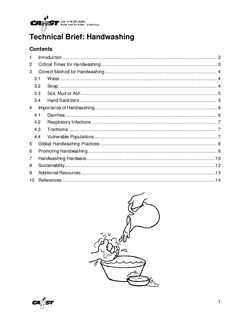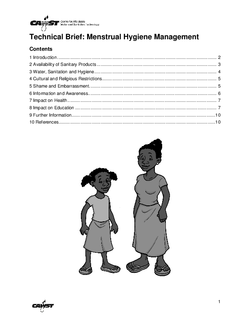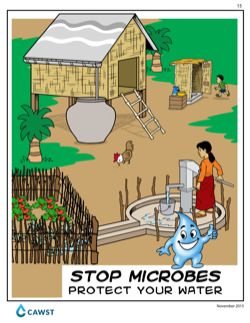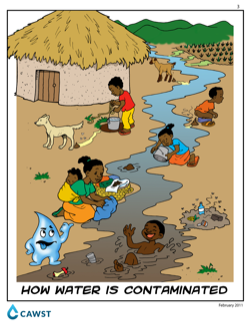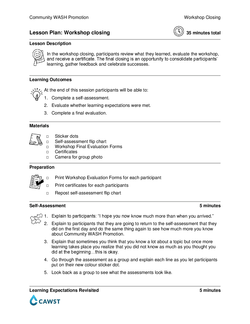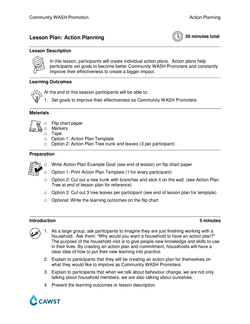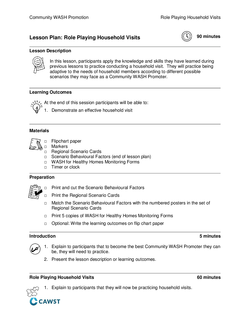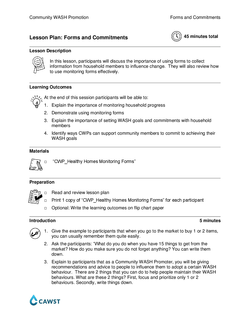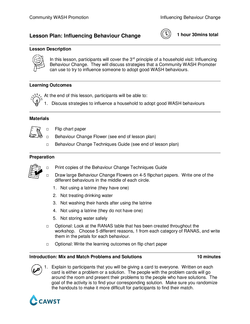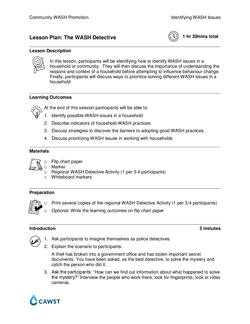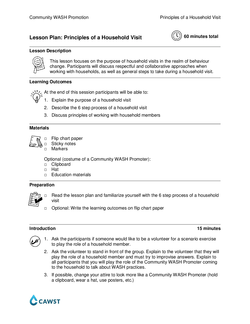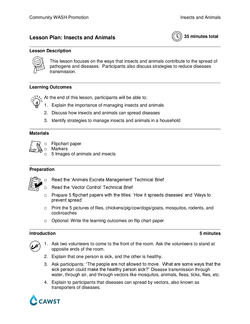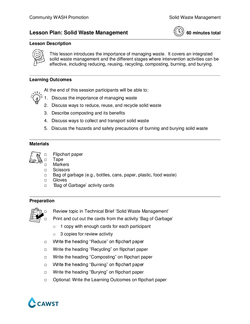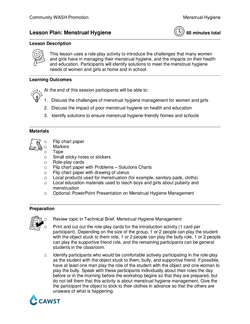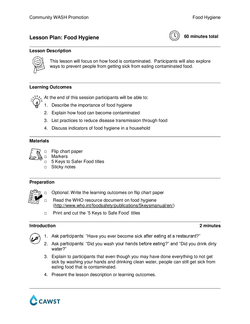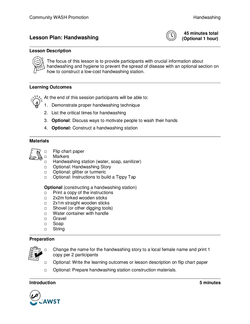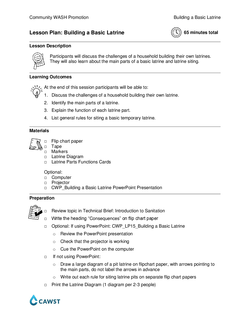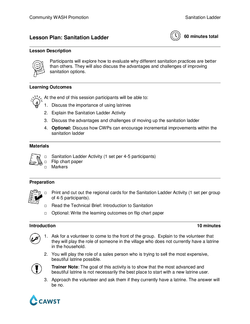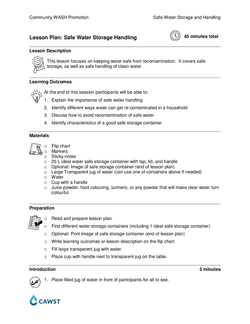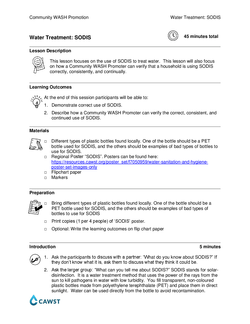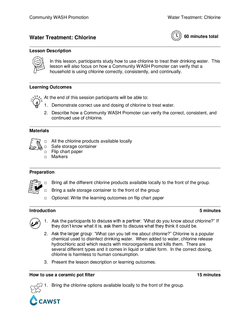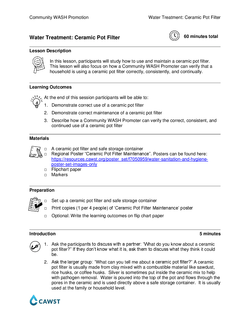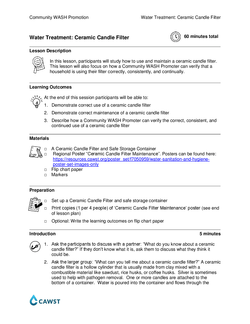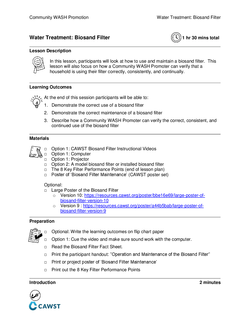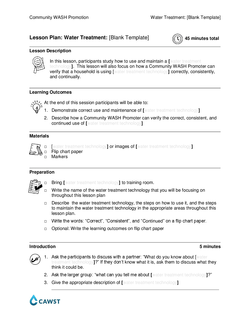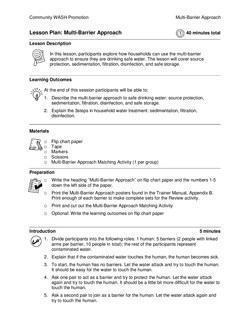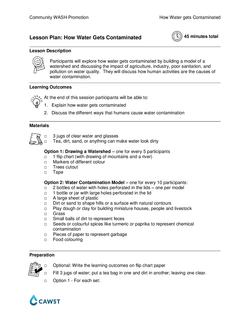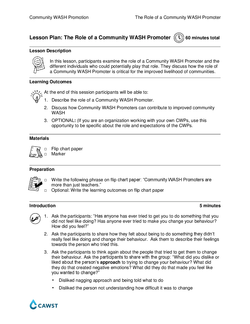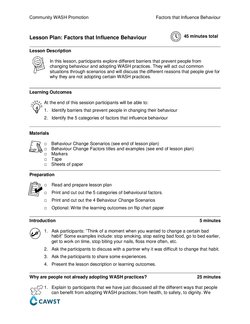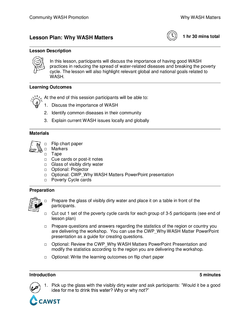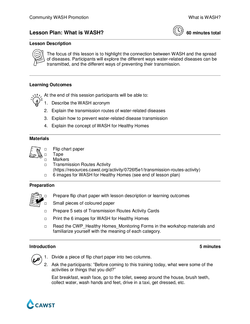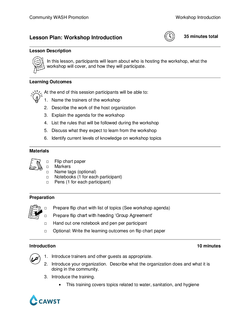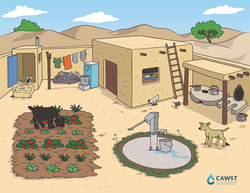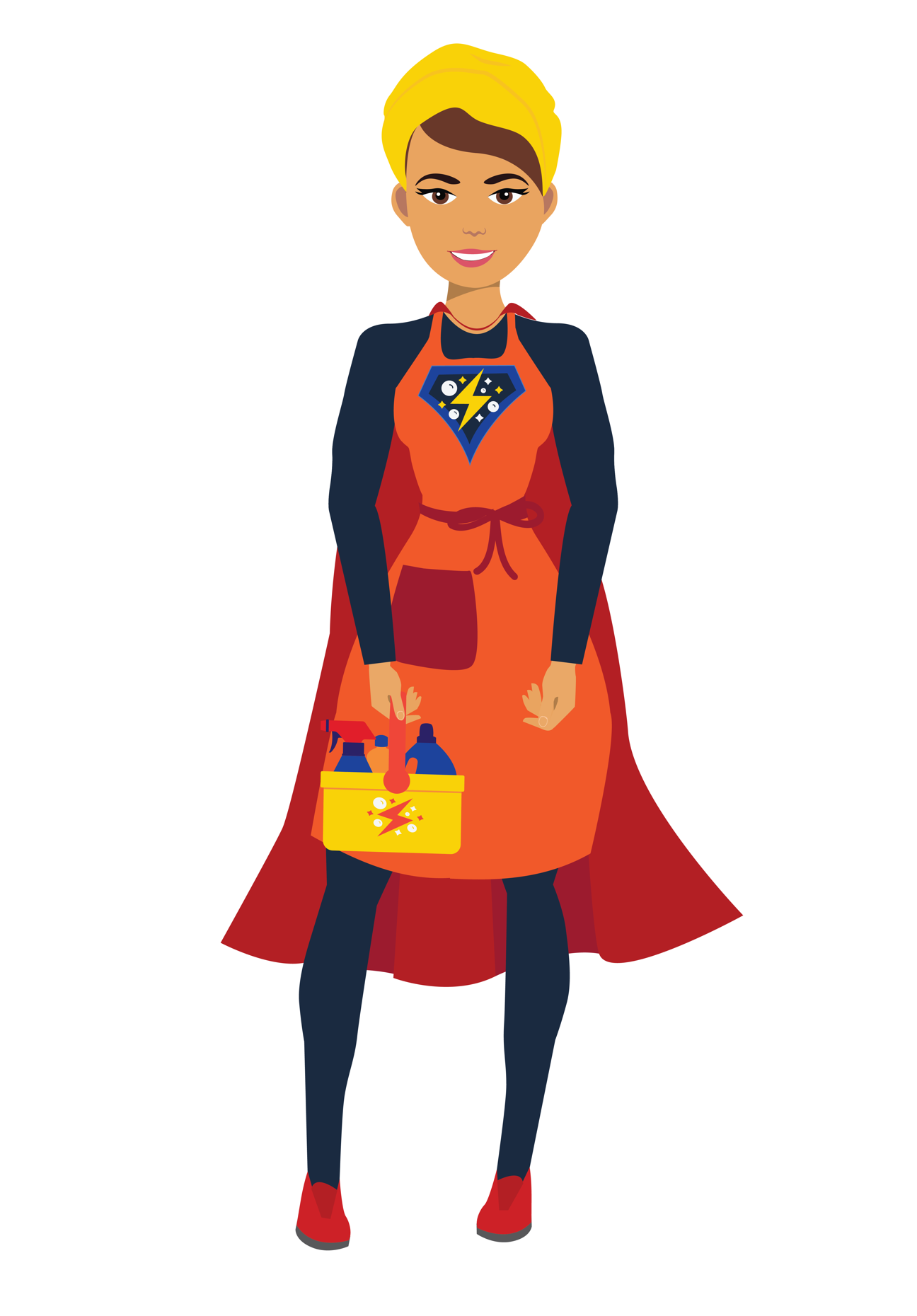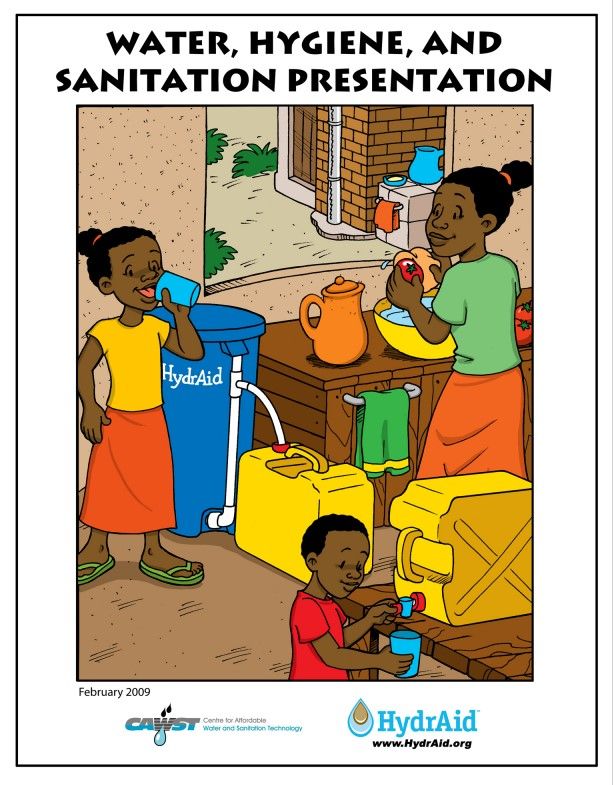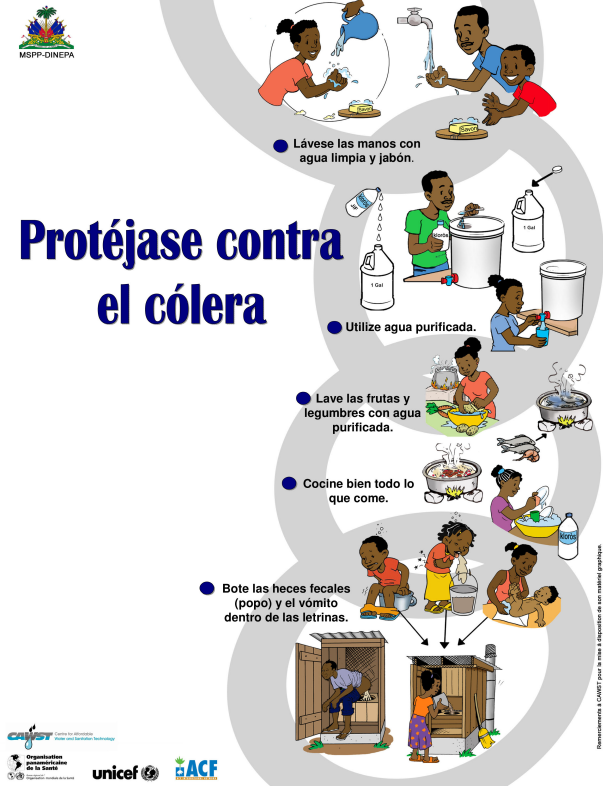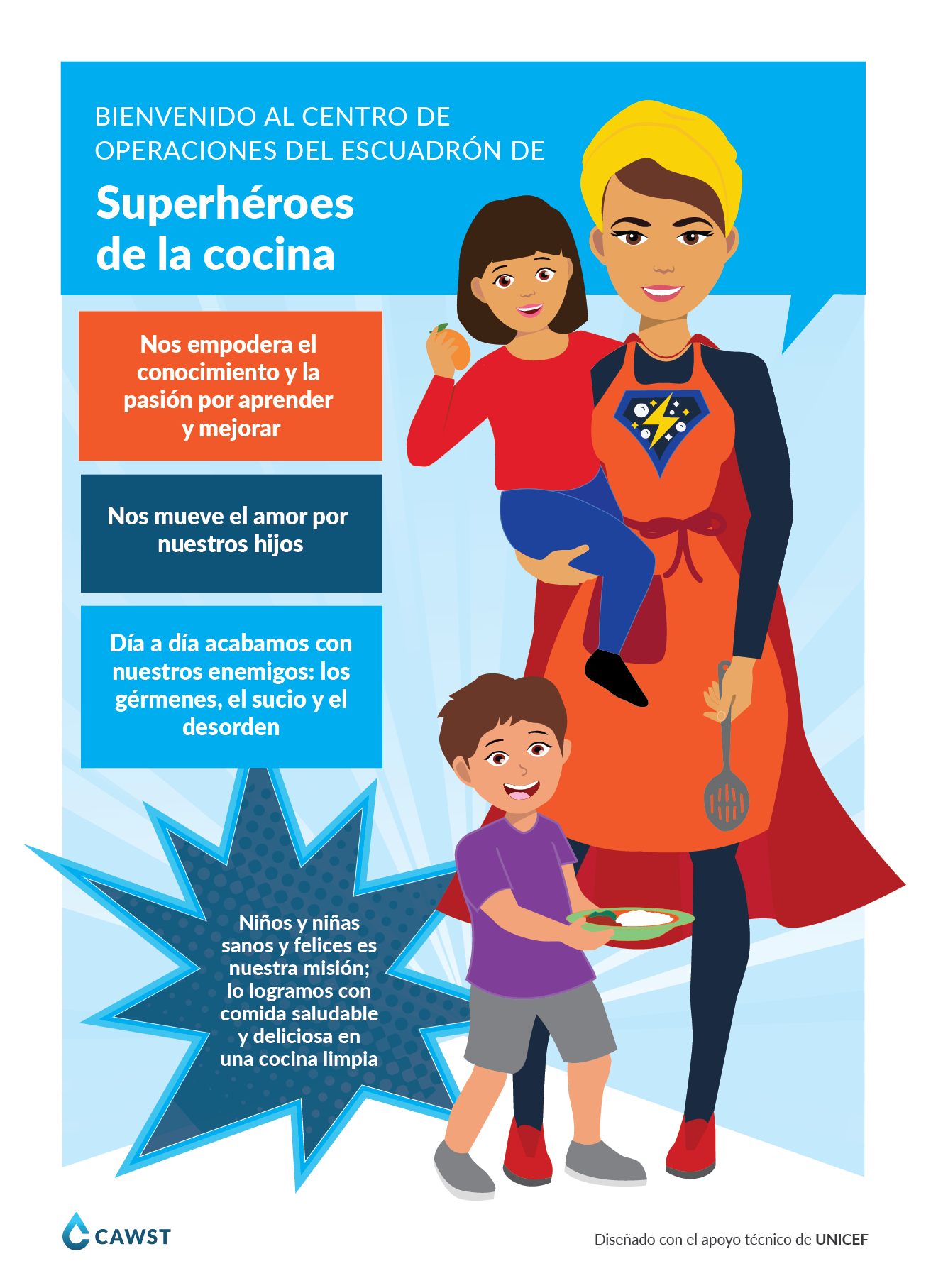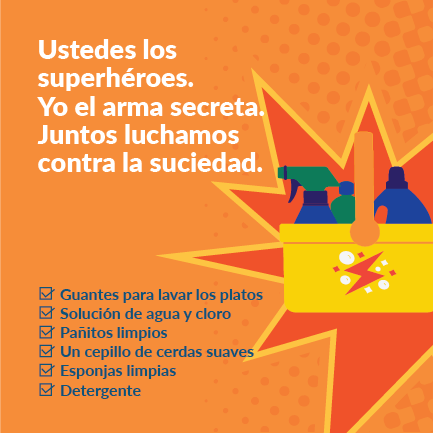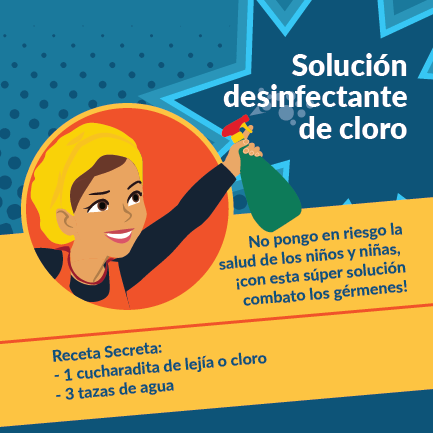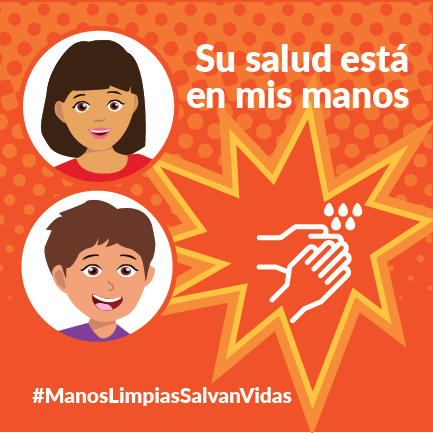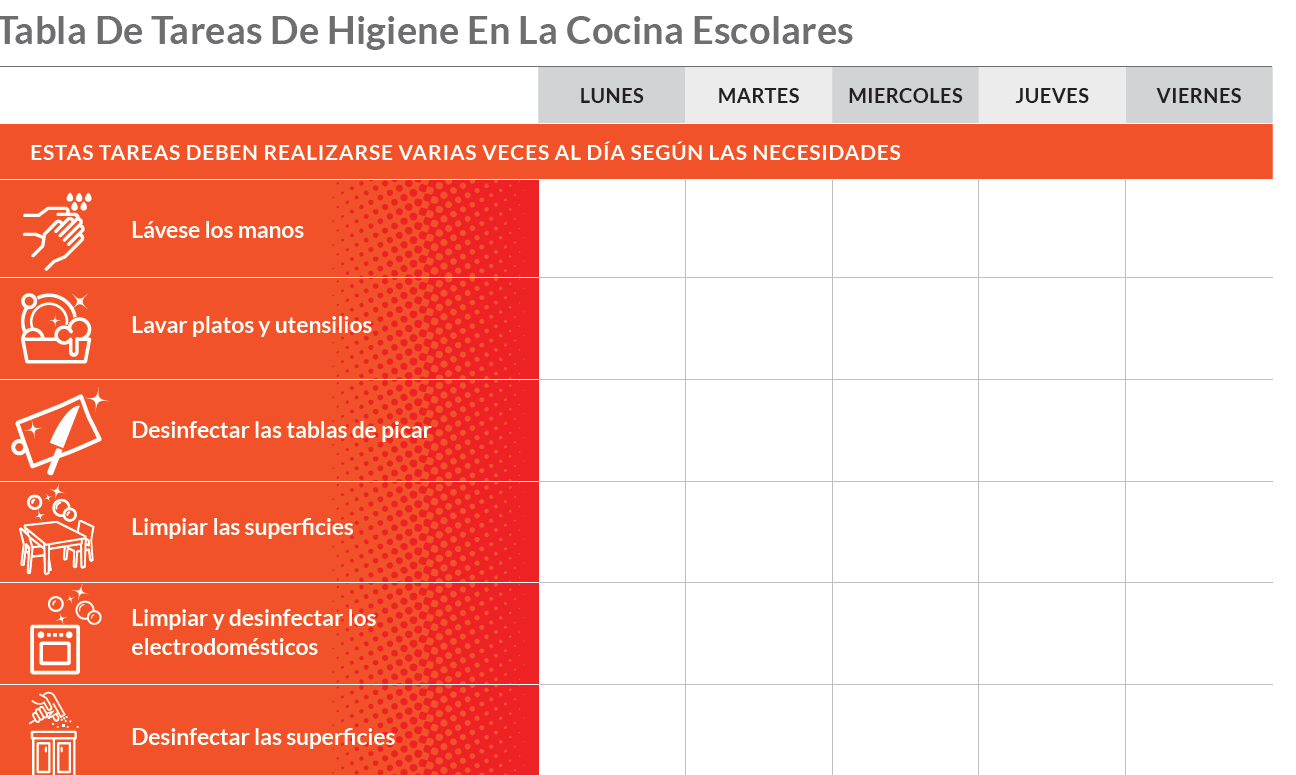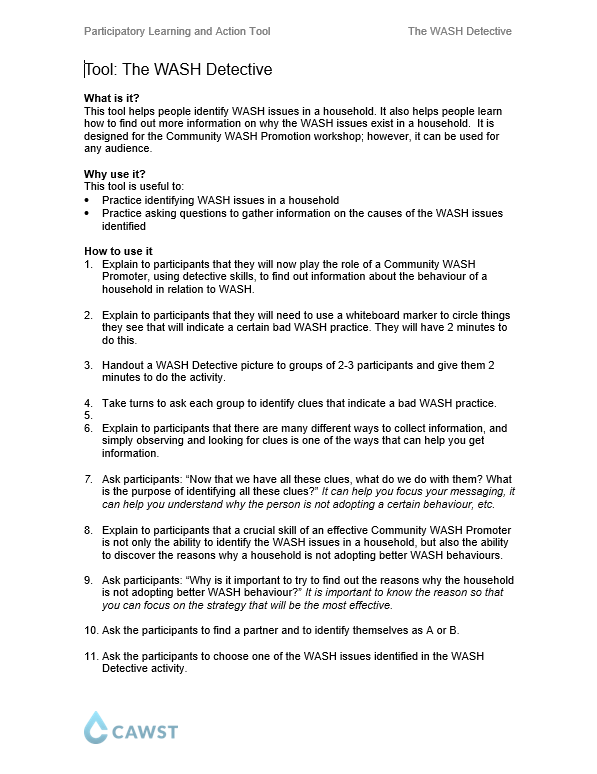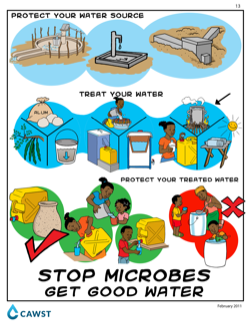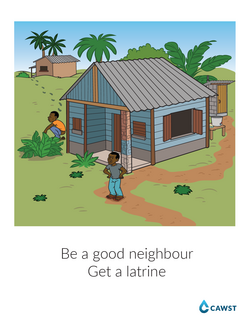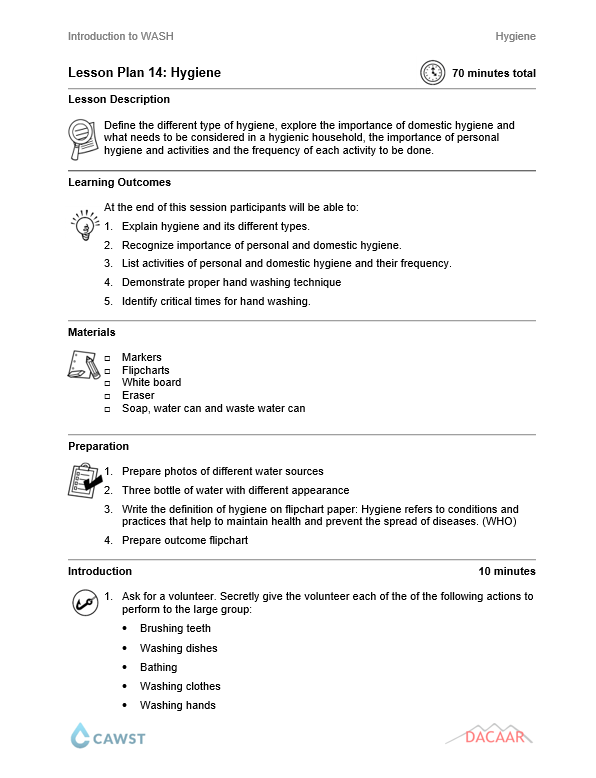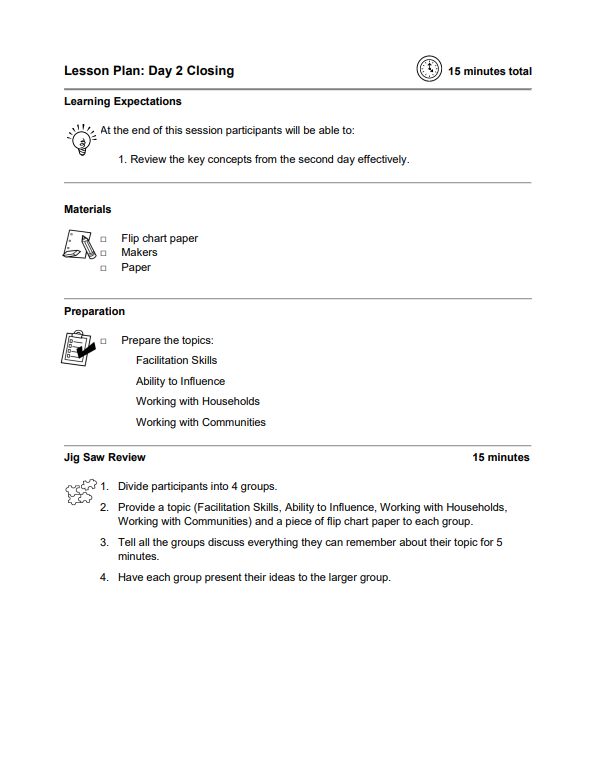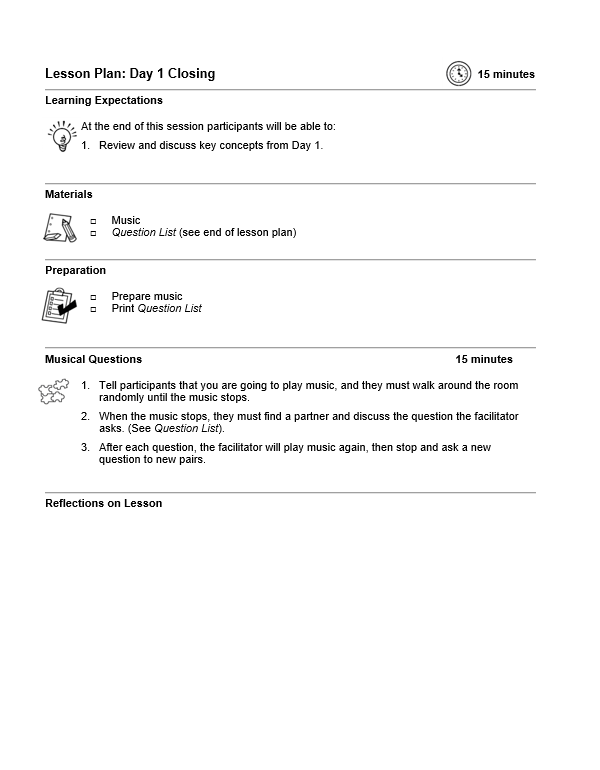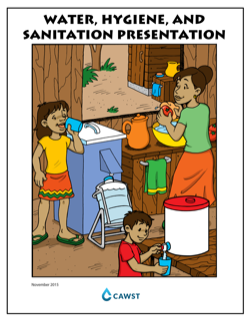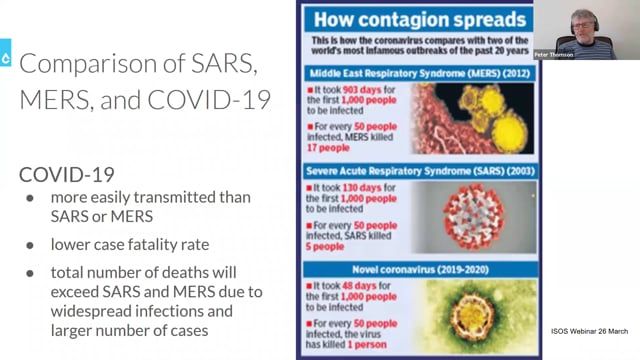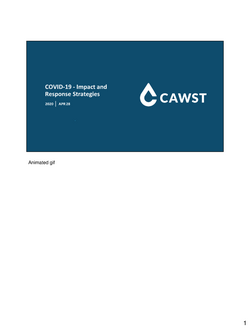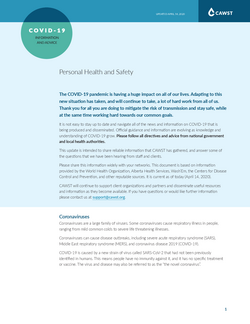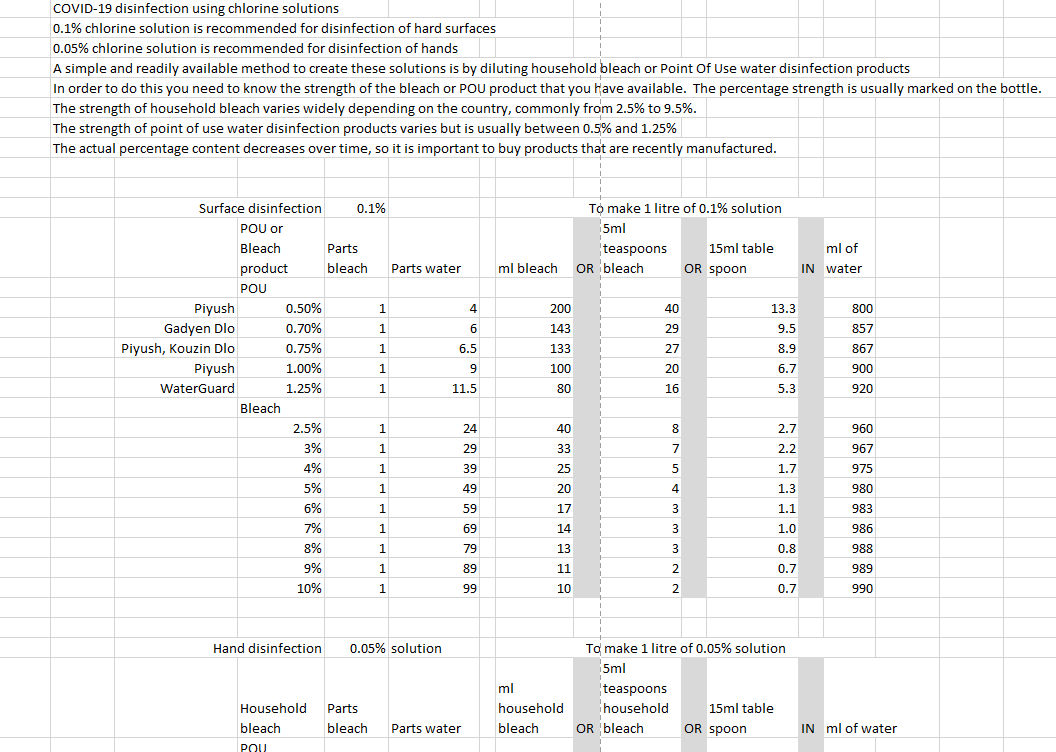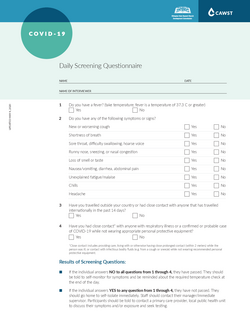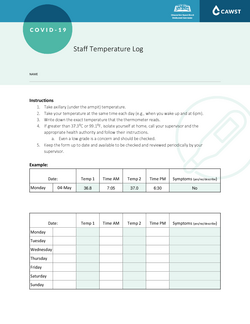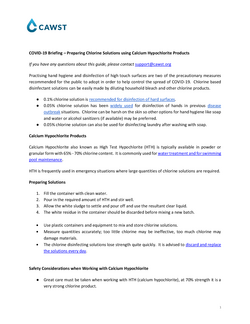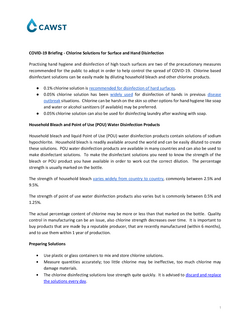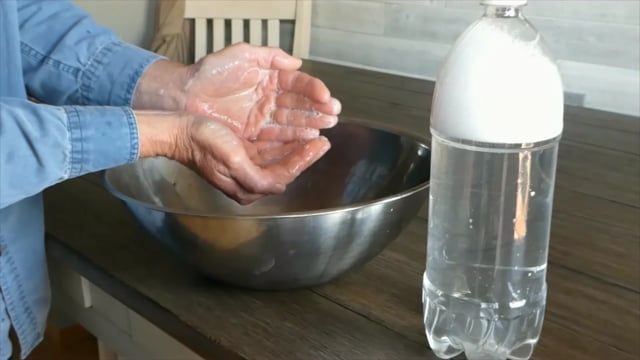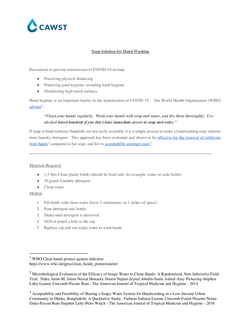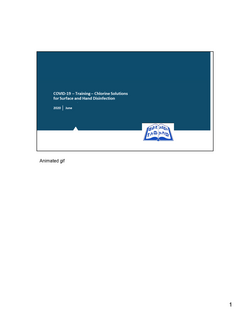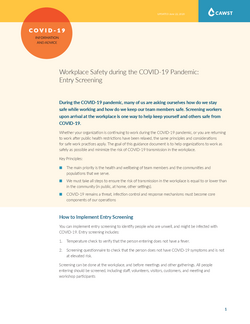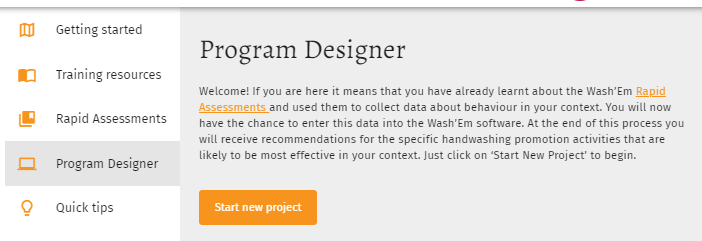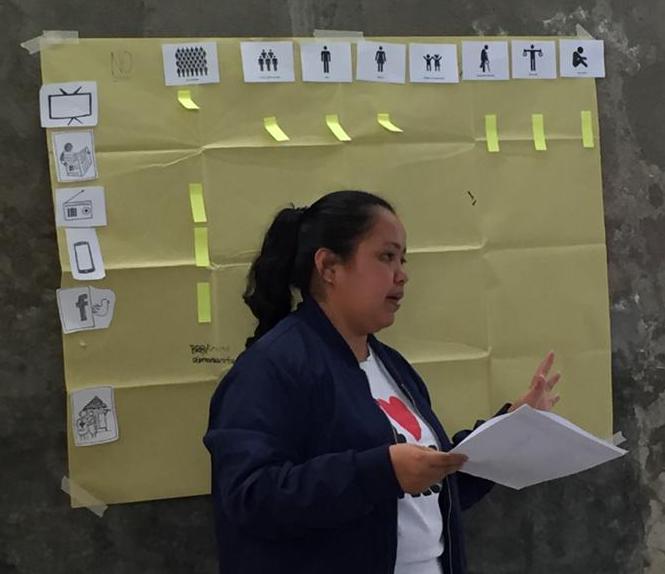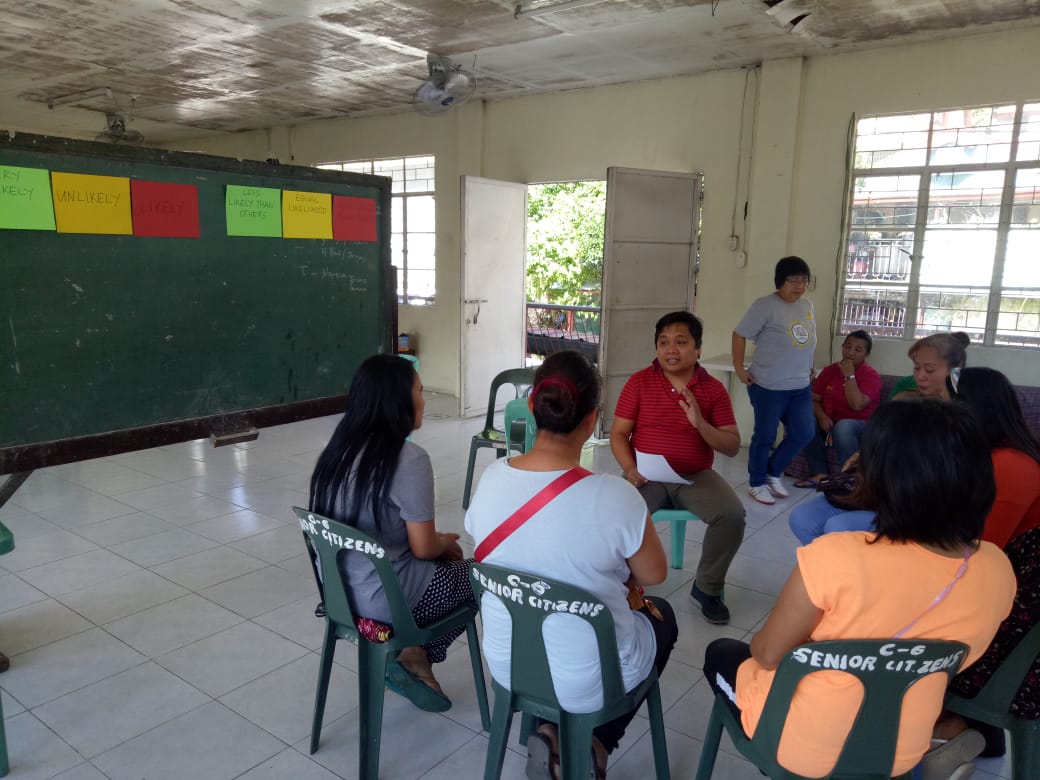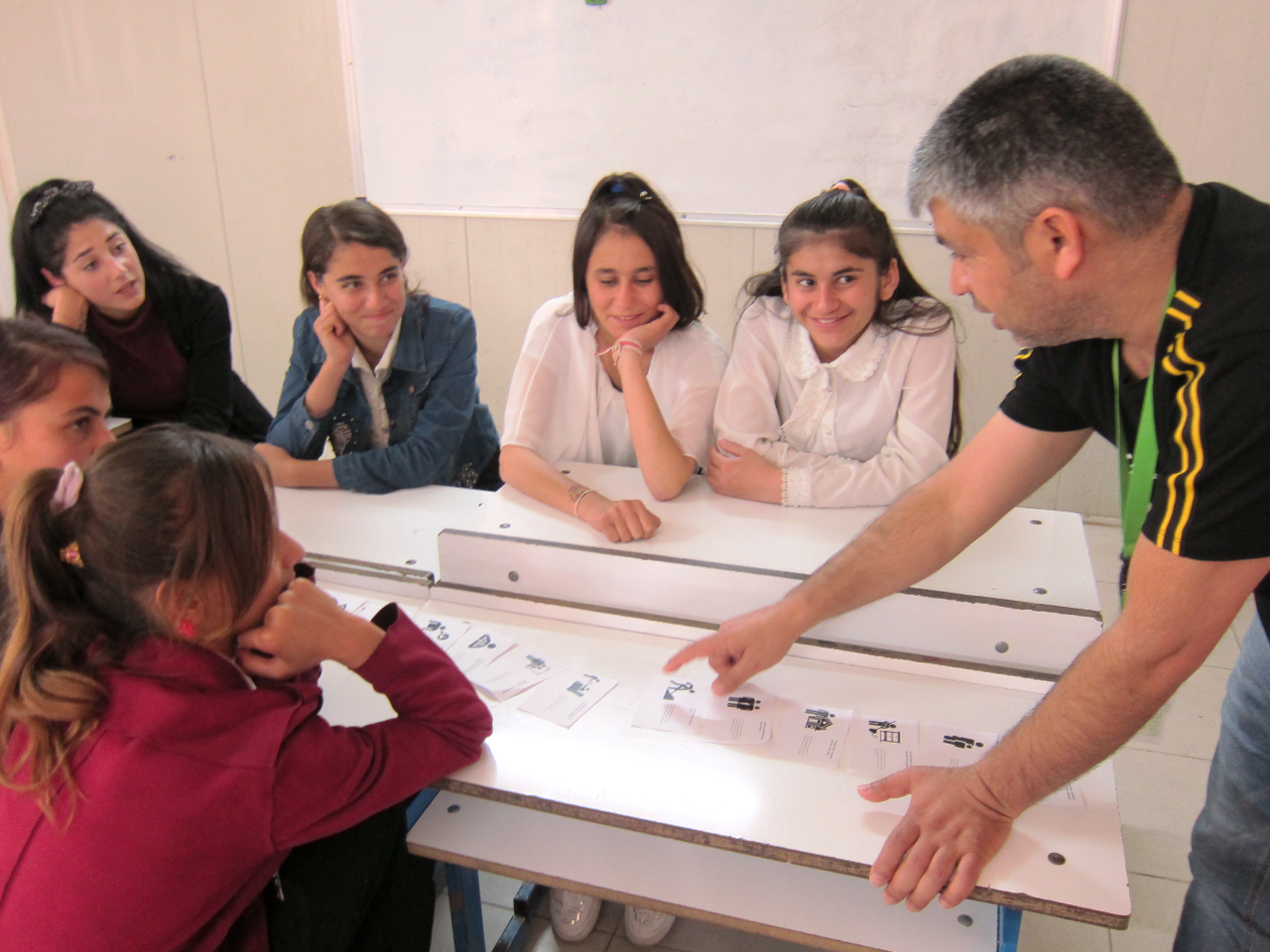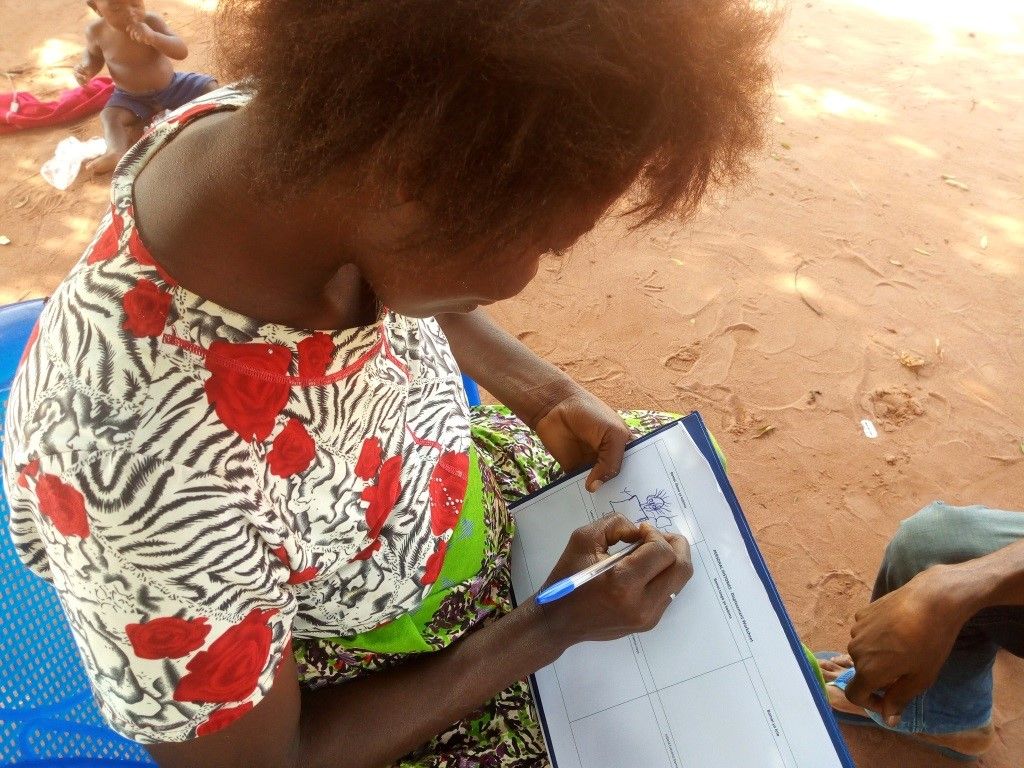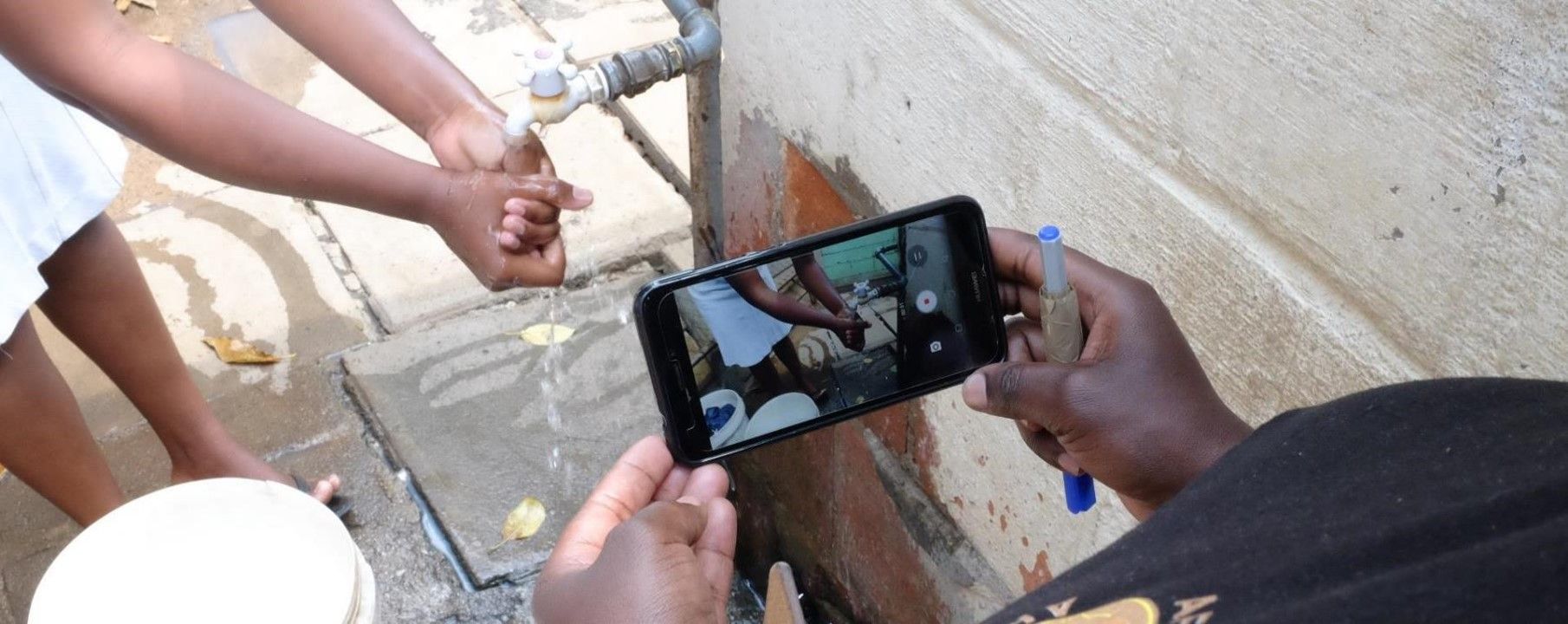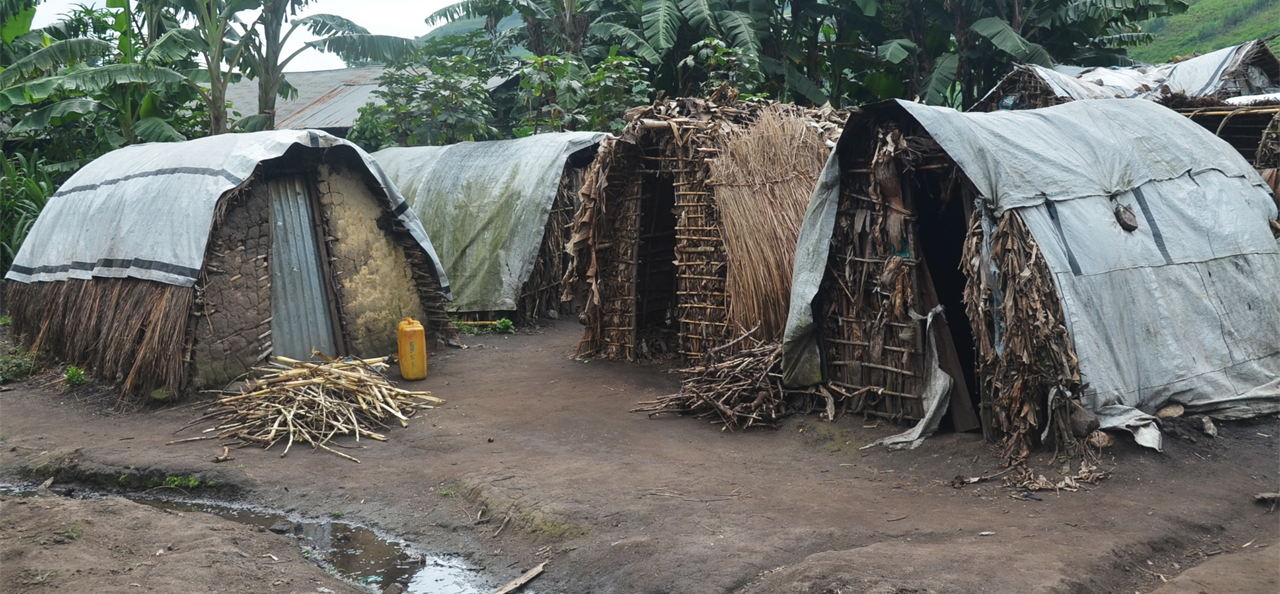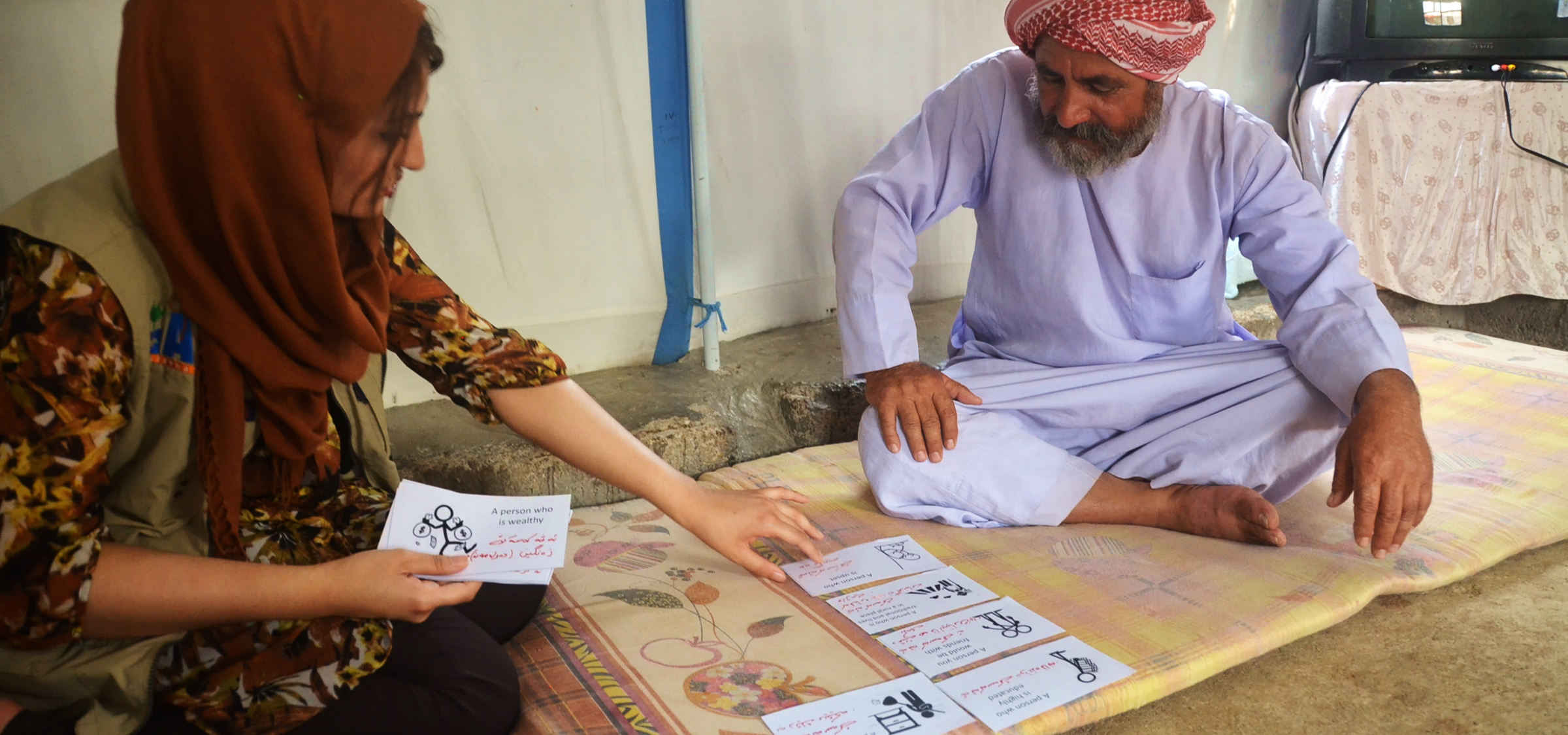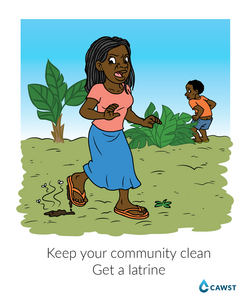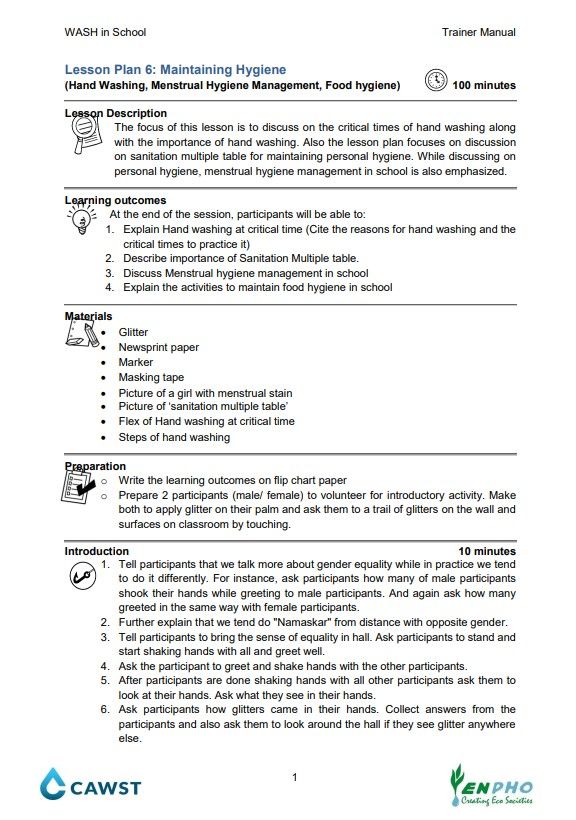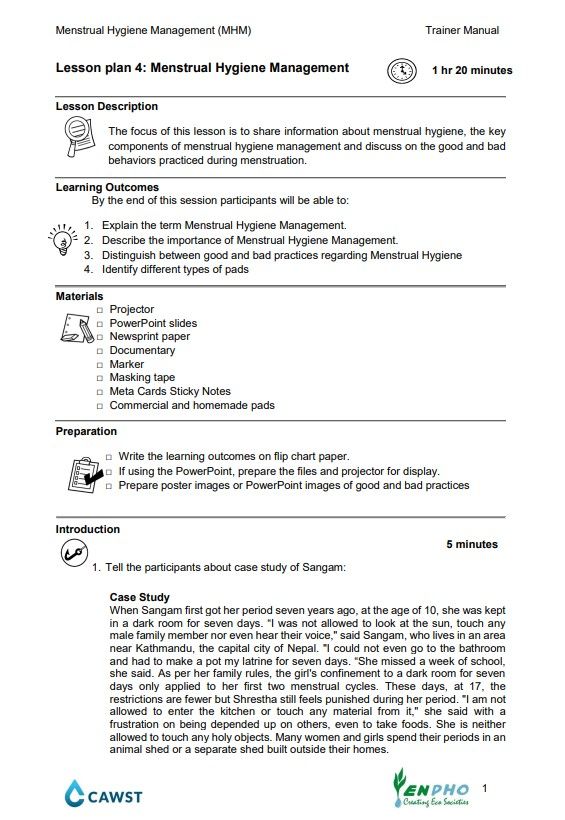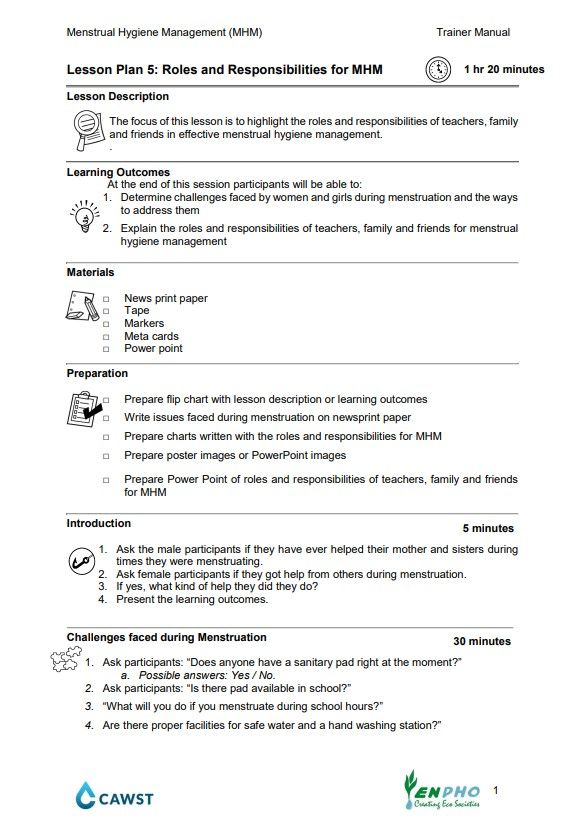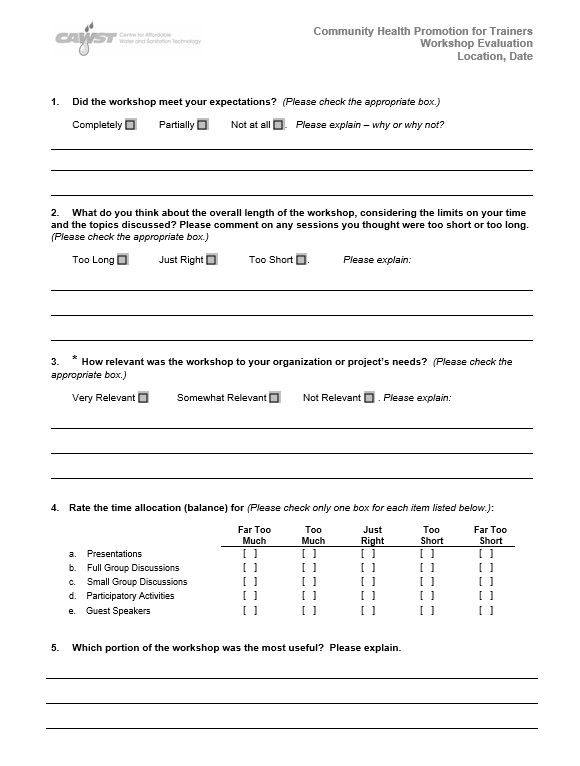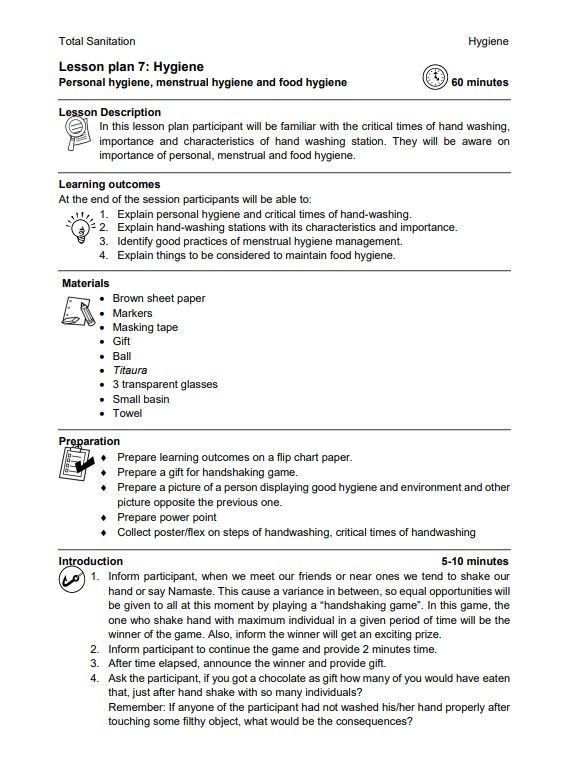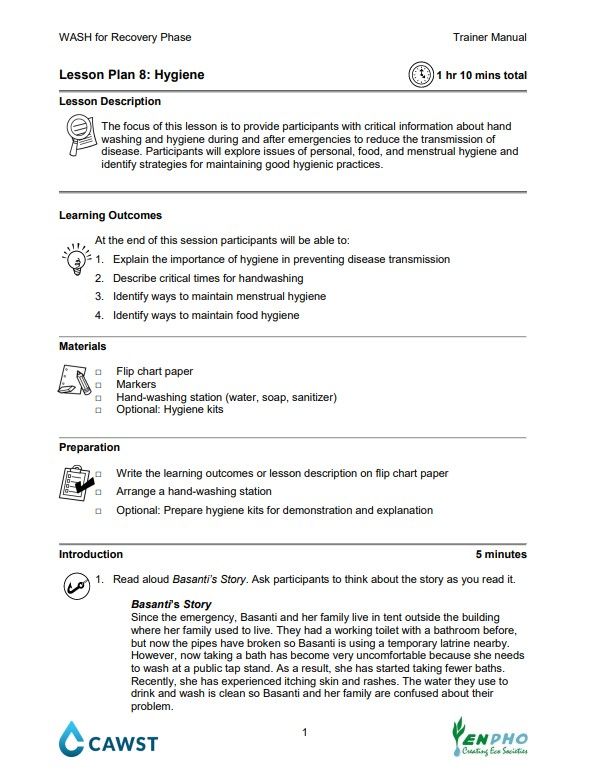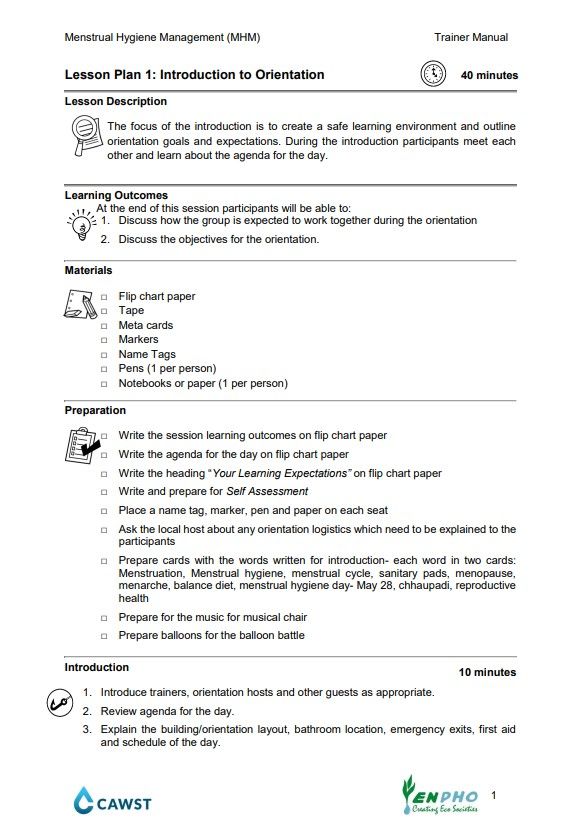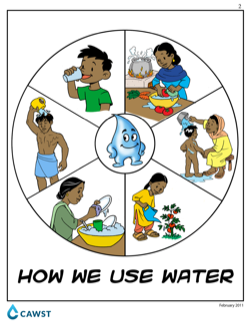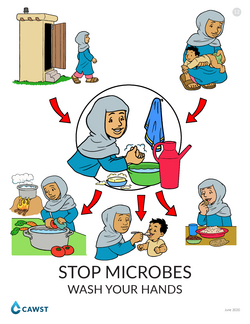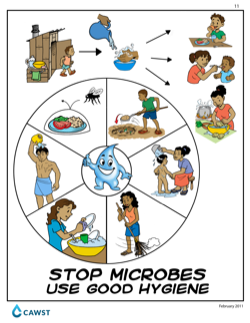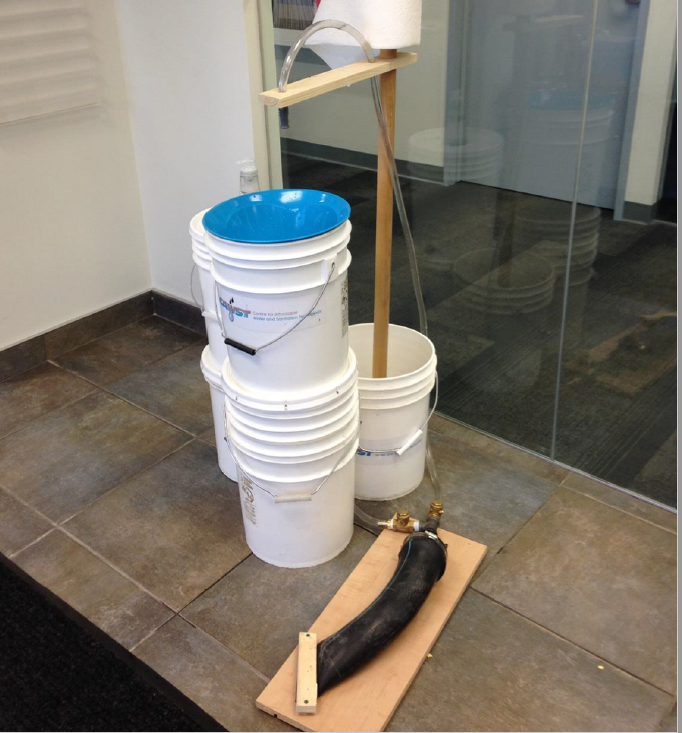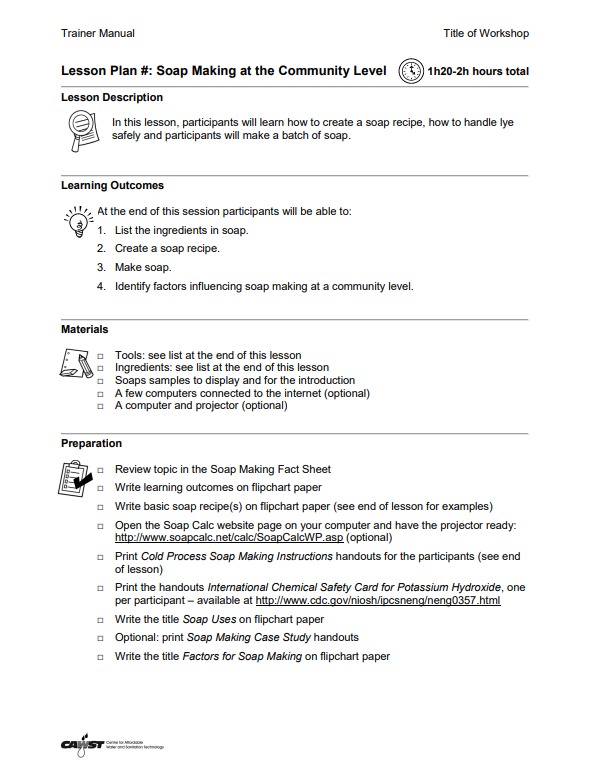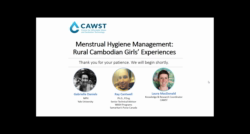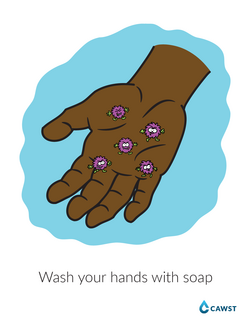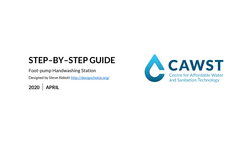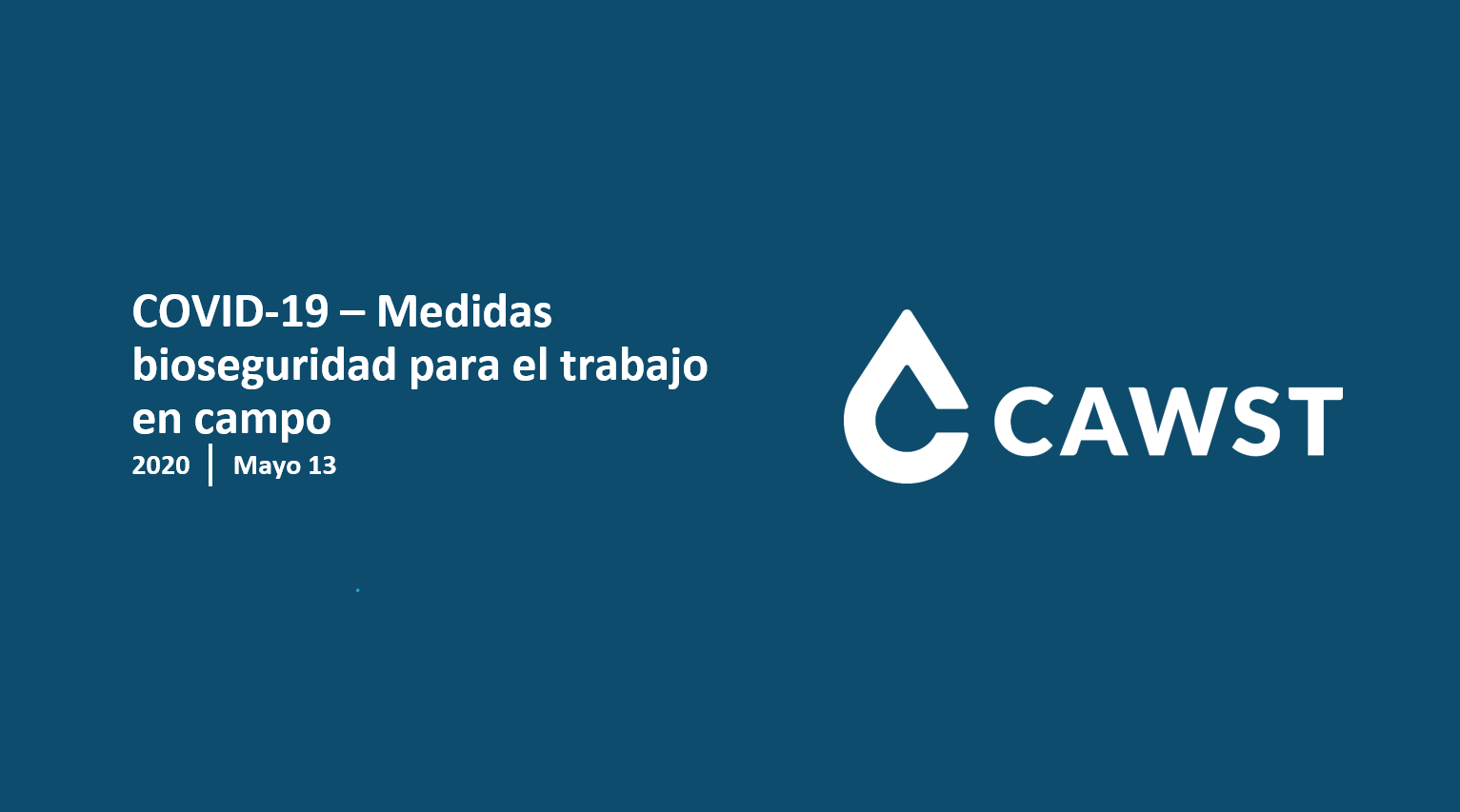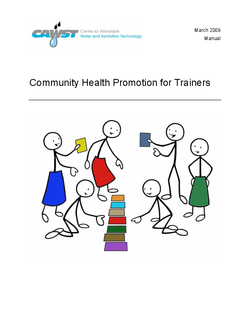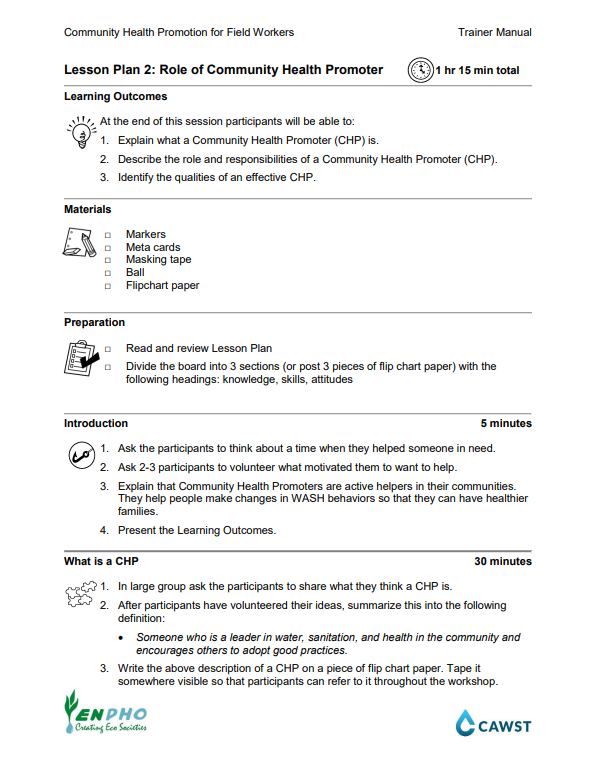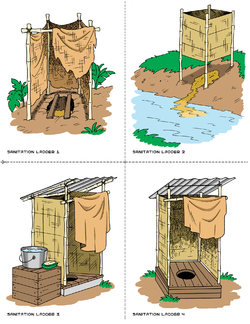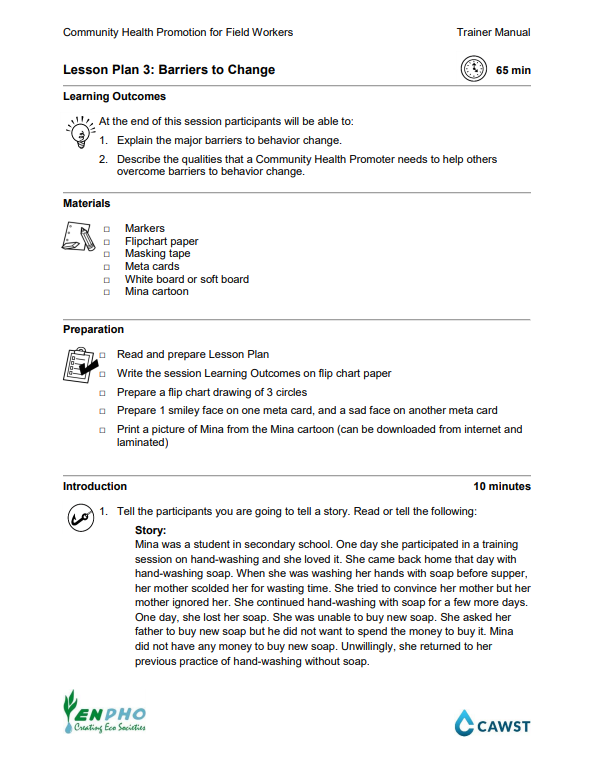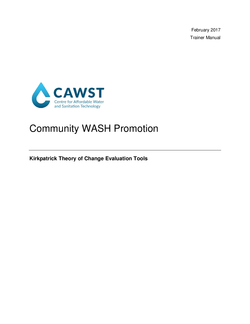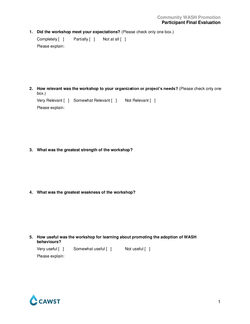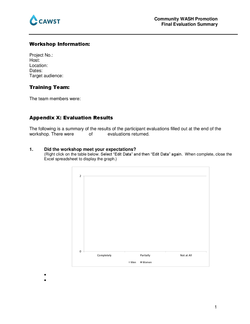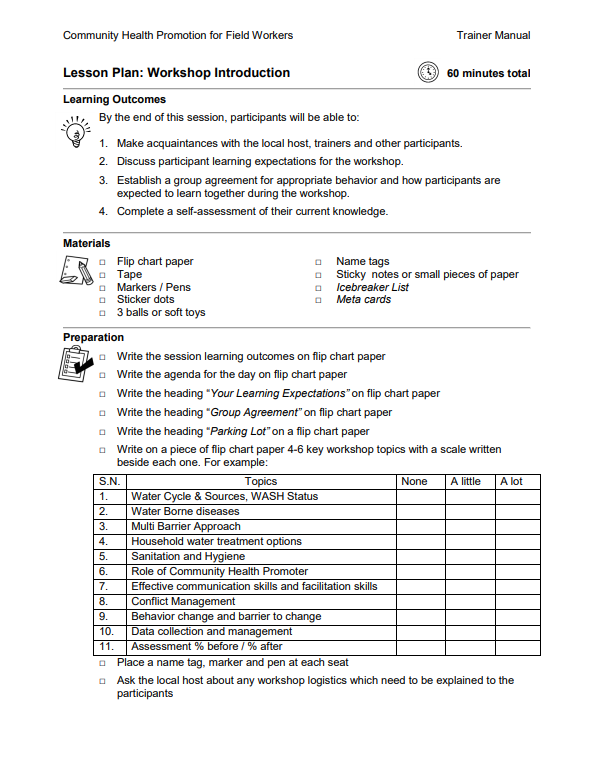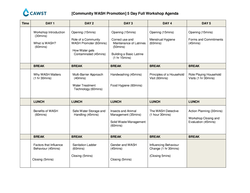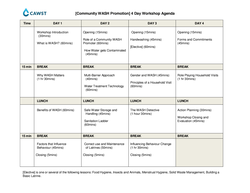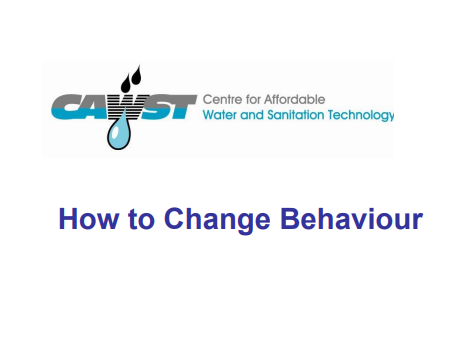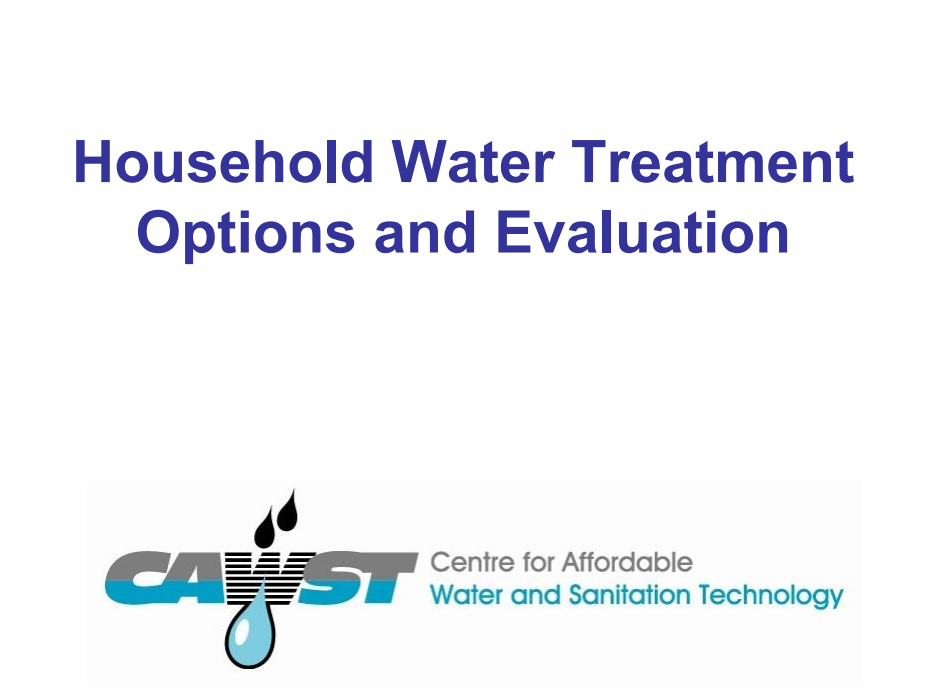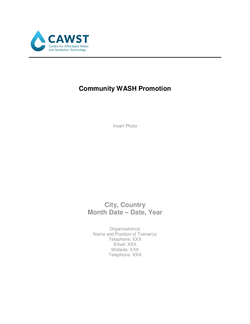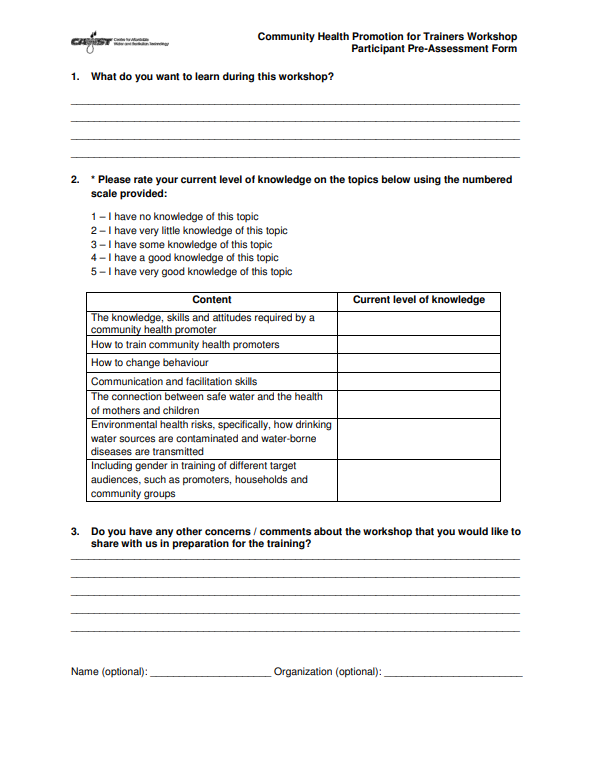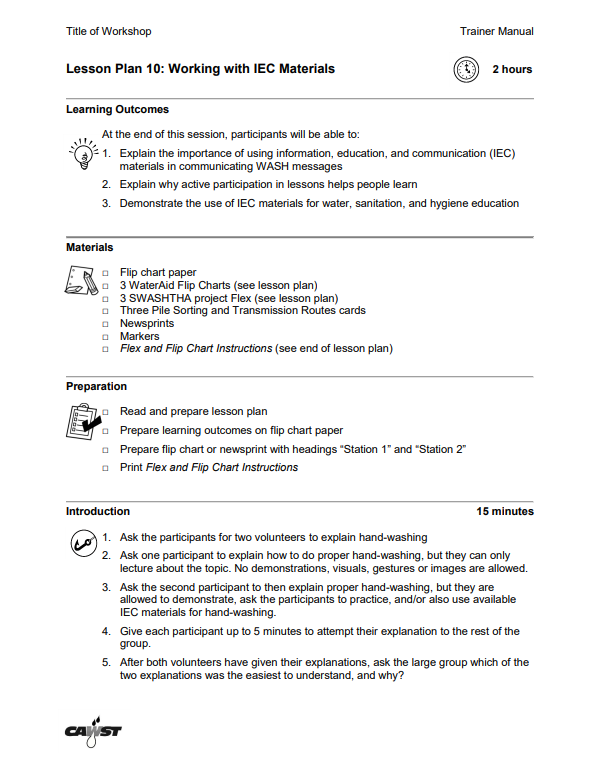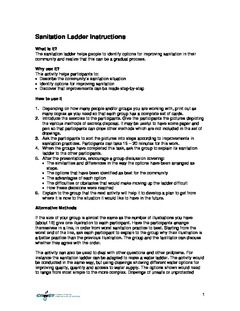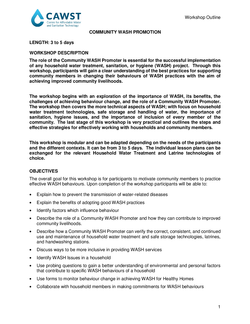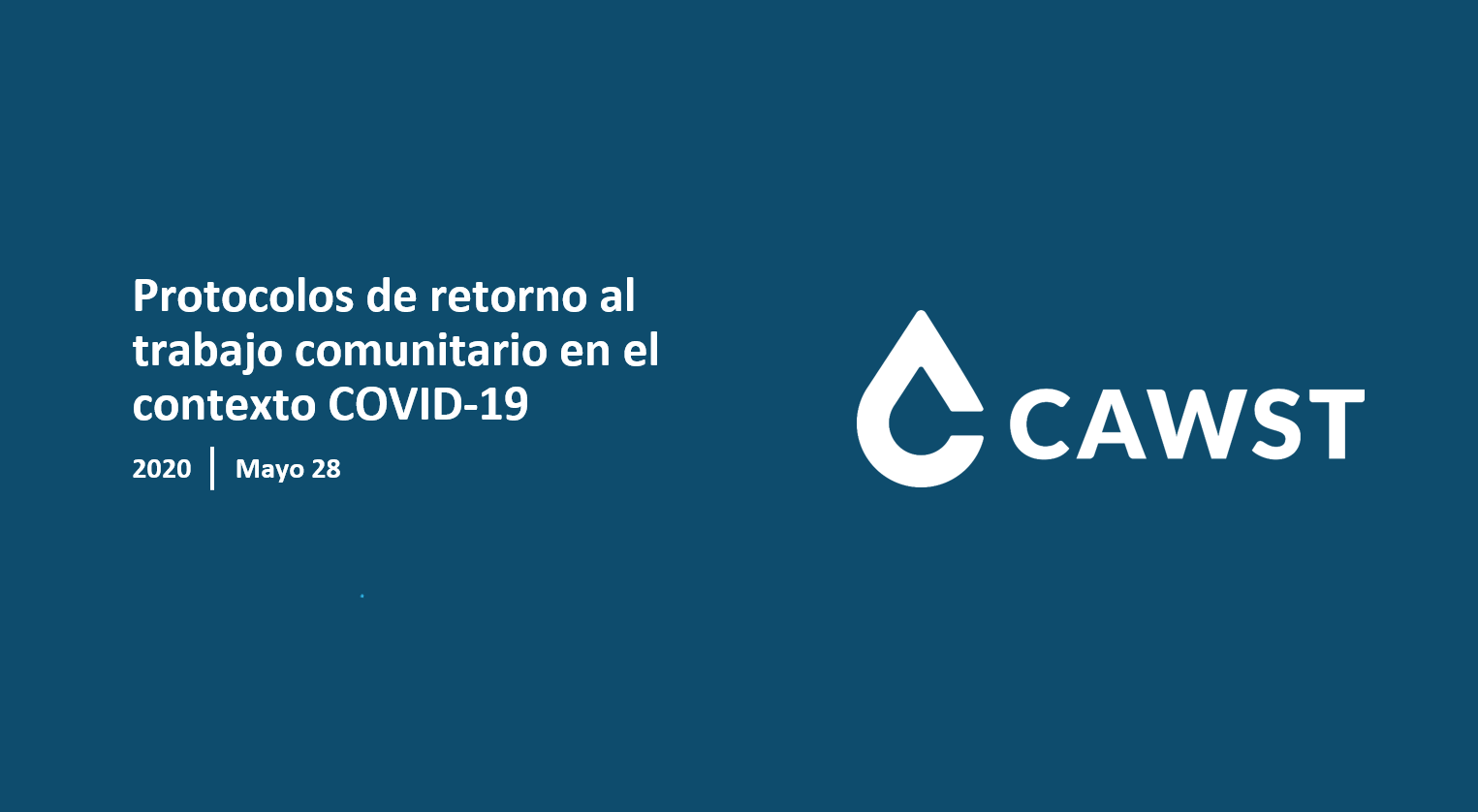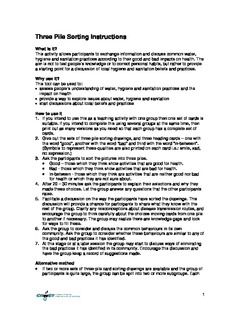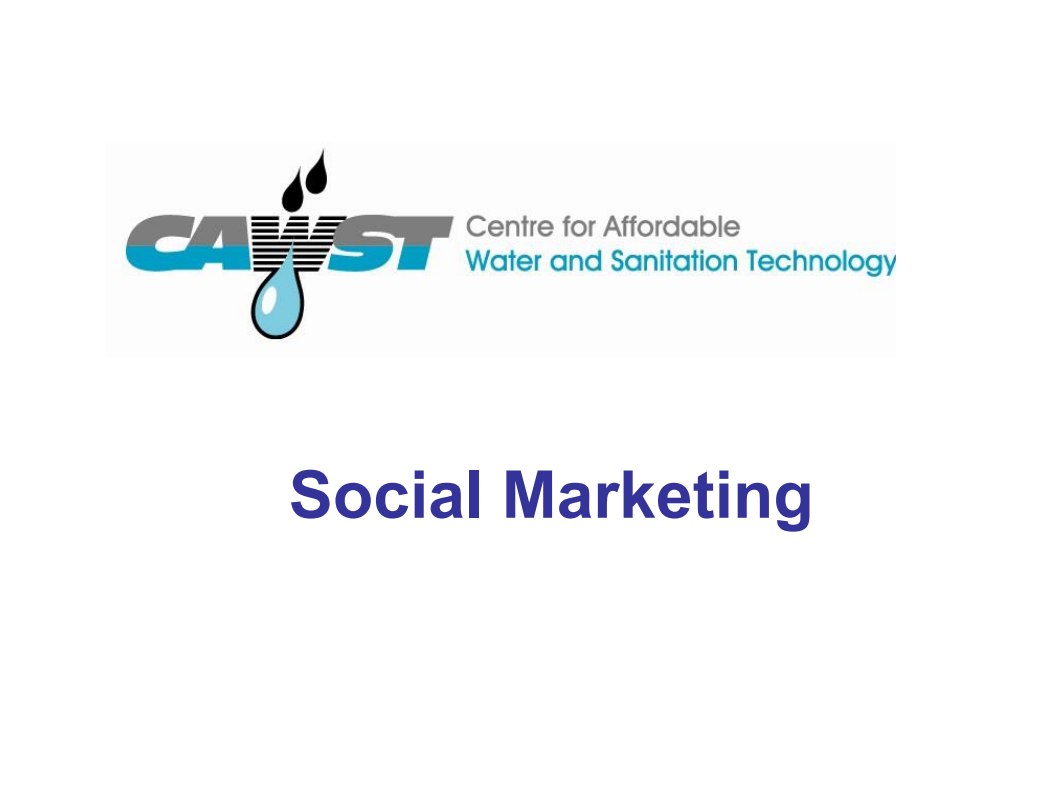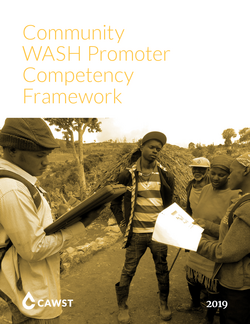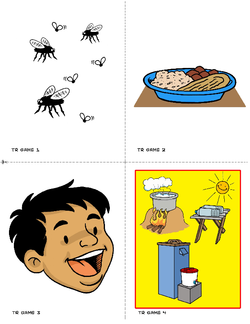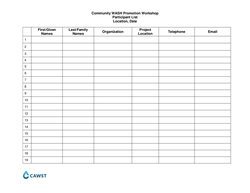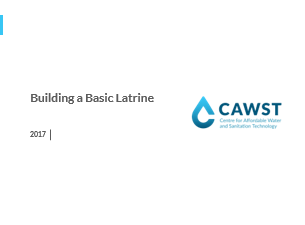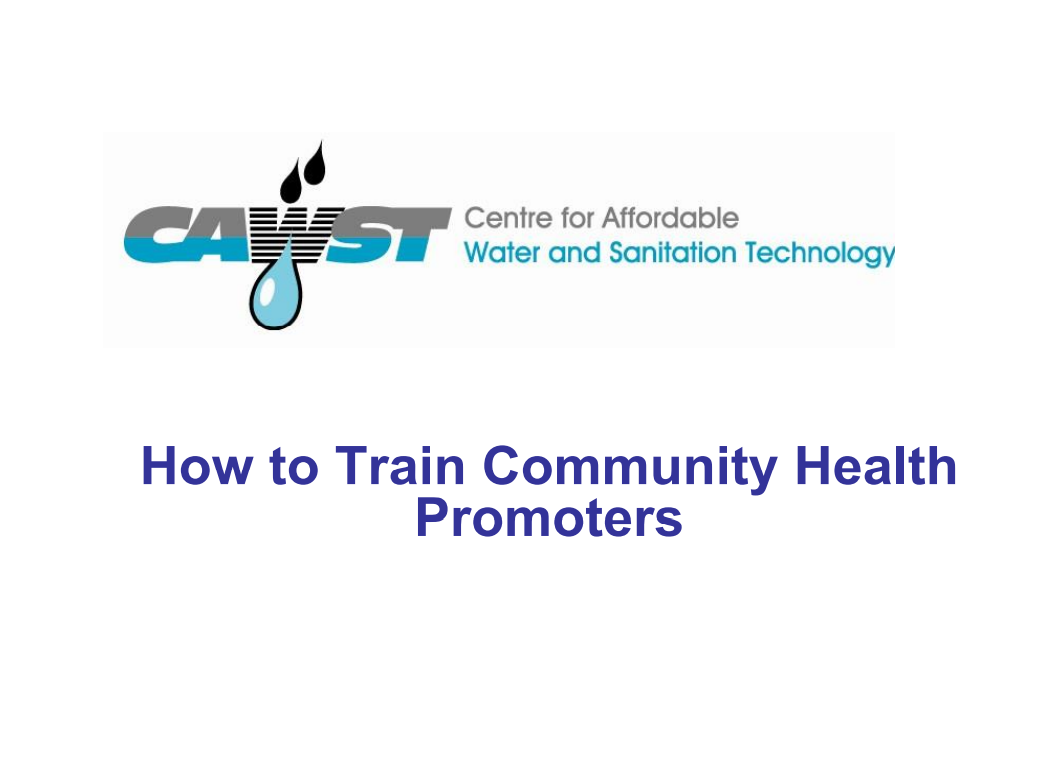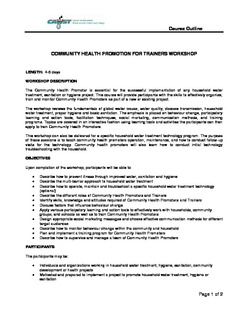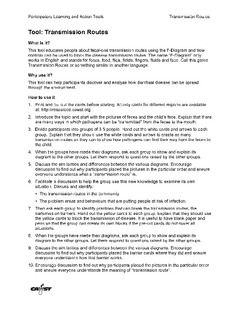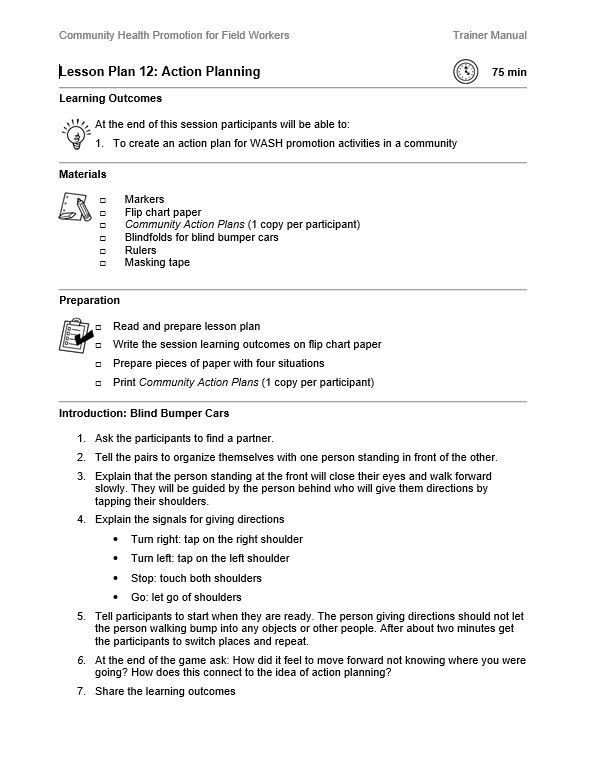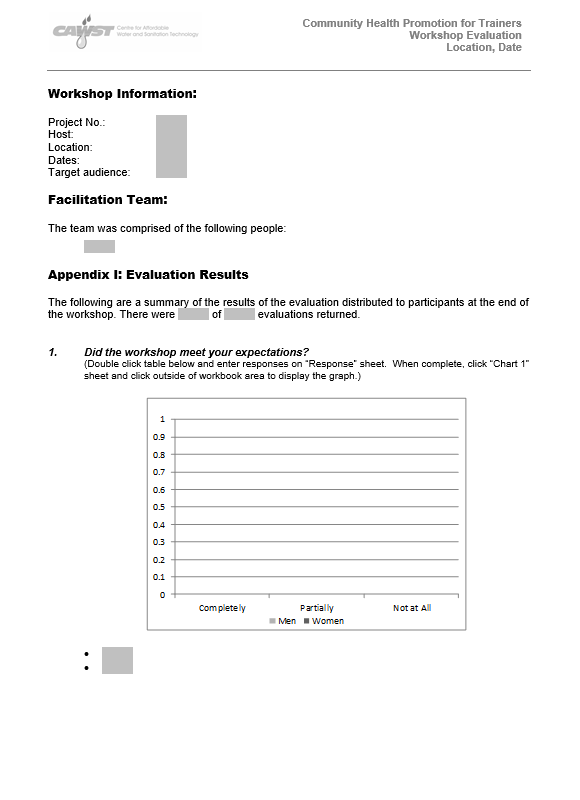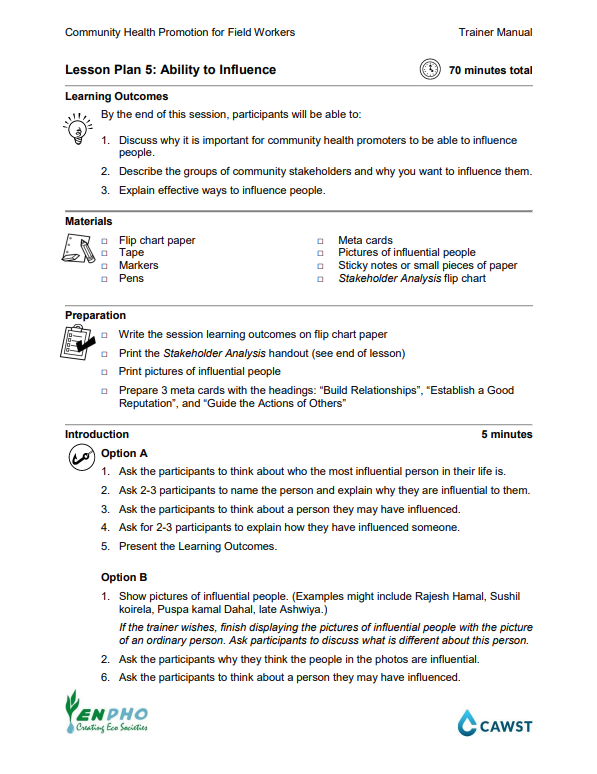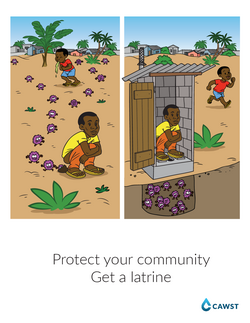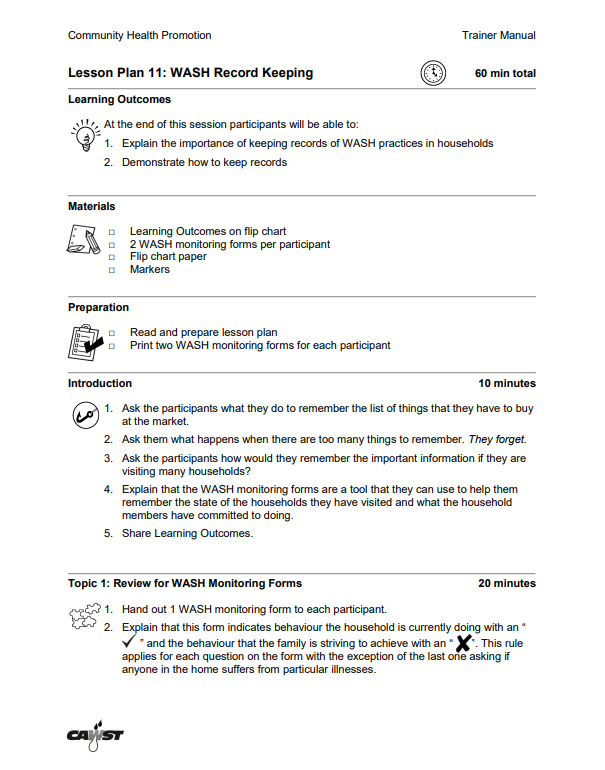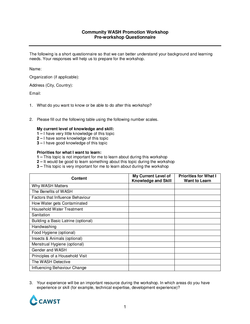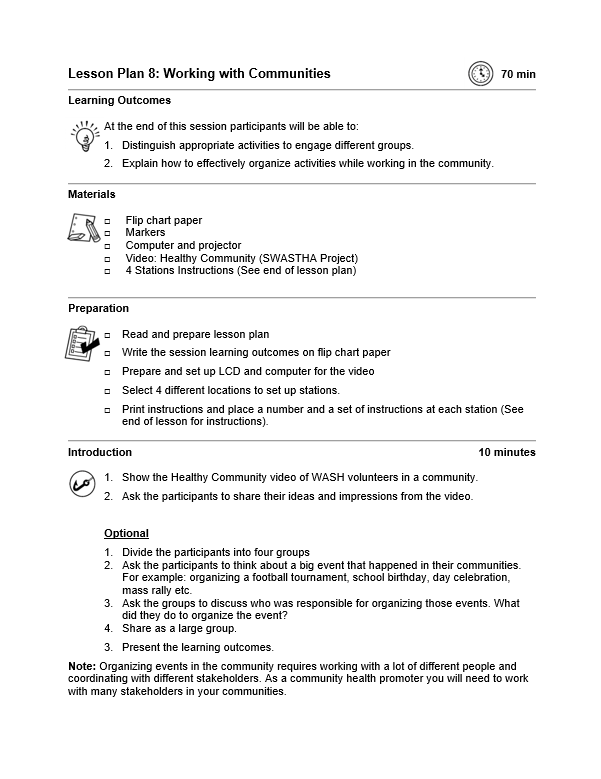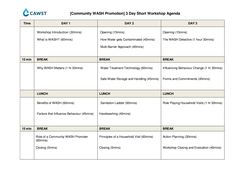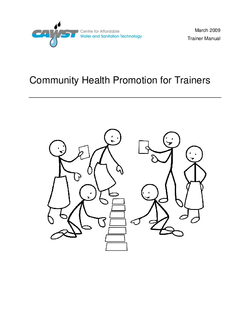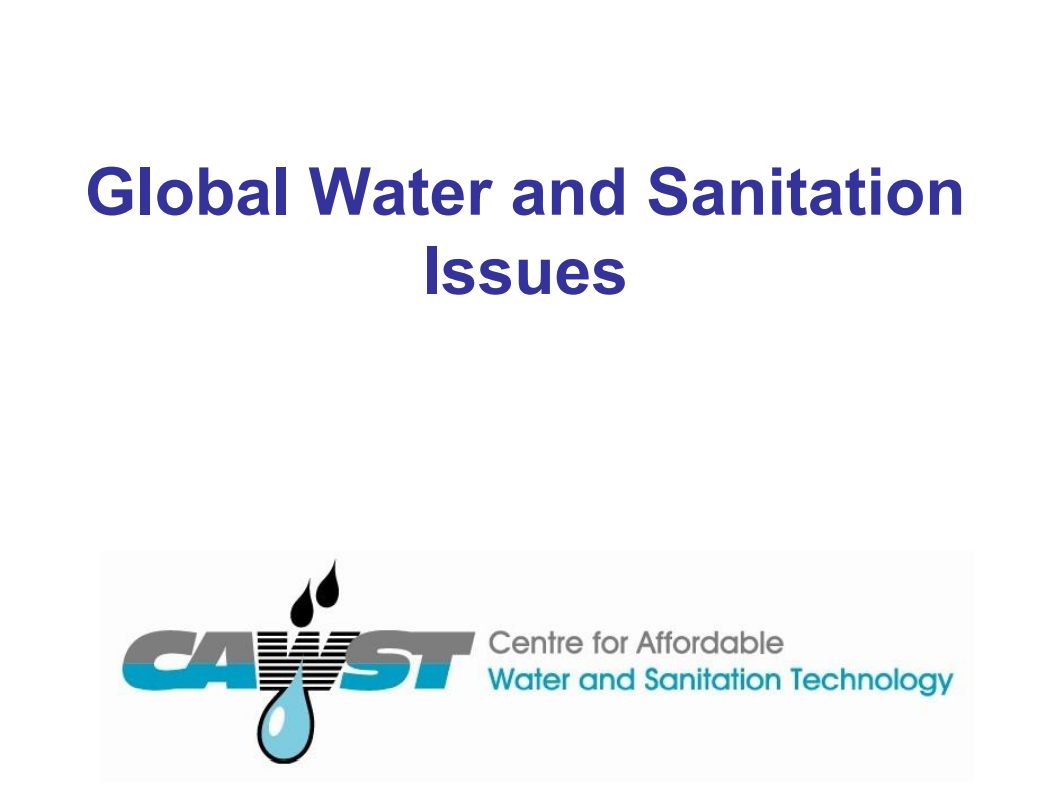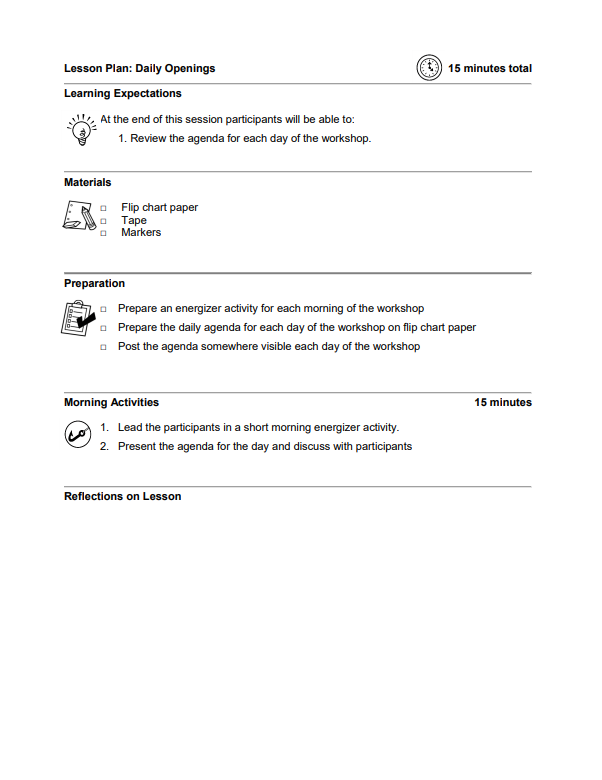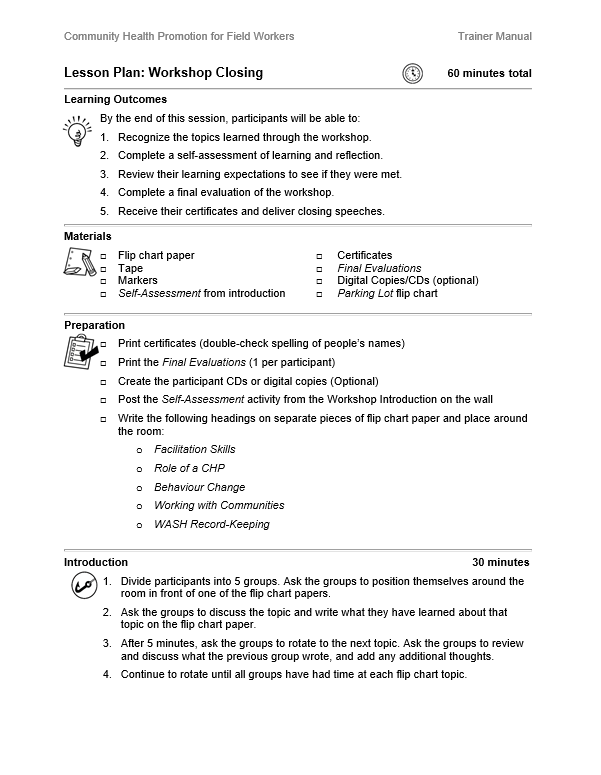Explore Hygiene
Menstrual Hygiene Management
This collection contains the resources for both trainers and participants on menstrual hygiene management. These materials are designed for organizations introducing menstrual hygiene management.
Languages
Spanish
English
French
Khmer
Amharic
Soap Making Fact Sheet
This fact sheet describes the history of soap, what is soap, how it's made and the two processes for making soap.
Languages
Spanish
English
French
Khmer
Handwashing Technical Brief
Describes the critical times for handwashing, the proper method for handwashing and its importance, as well as discusses how to promote handwashing and handwashing hardware.
Languages
French
Spanish
English
Khmer
Menstrual Hygiene Management Technical Brief
This technical brief describes the variety of sanitary products available, WASH as it relates to menstrual hygiene, cultural and religious restrictions related to menstrual hygiene and the impact it has on health and education.
Languages
Spanish
English
French
Khmer
Competency Frameworks
This collection of competency frameworks can be used by individuals and organizations in two main ways: Assess job performance and compare it against defined standards Identify potential areas for professional development to improve overall performance Competencies are the abilities required to perform specific tasks and express specific knowledge. CAWST’s competency frameworks use behavioural or task-based competencies in combination with knowledge components.
Languages
Spanish
French
English
Community WASH Promotion Trainer Manual
This manual is for trainers who are interested in delivering training on Community WASH Promotion. It includes lesson plans, agendas, forms, and guidance on training delivery.
Languages
English
Spanish
French
Arabic
Hindi
Protect Your Water
There are ways to protect water from contamination (watershed and water source protection, protected well, proper rainwater storage, good wastewater disposal).
Languages
Spanish
English
Swahili
Haitian Creole
French
Wayuu
Accelerating informed WASH behavior: A participatory community learning guide
This manual promotes sustainable practices through sensitization while addressing the challenges faced by community in WASH.
Languages
English
Hindi
WASH development in School
This manual equips school management and staff with the knowledge to instill WASH concepts among students.
Languages
English
Hindi
Workshop Closing - Lesson Plan (CWP)
In the workshop closing, participants review what they learned, evaluate the workshop, and receive a certificate. The final closing is an opportunity to consolidate participants’ learning, gather feedback and celebrate successes.
Languages
English
Arabic
French
Spanish
Action Planning - Lesson Plan (CWP)
In this lesson, participants will create individual action plans. Action plans help participants set goals to become better Community WASH Promoters and constantly improve their effectiveness to create a bigger impact.
Languages
English
Arabic
French
Spanish
Role Playing Household Visits - Lesson Plan (CWP)
In this lesson, participants apply the knowledge and skills they have learned during previous lessons to practice conducting a household visit. They will practice being adaptive to the needs of household members according to different possible scenarios they may face as a Community WASH Promoter.
Languages
English
Arabic
French
Spanish
Forms and Commitments - Lesson Plan (CWP)
In this lesson, participants will discuss the importance of using forms to collect information from household members to influence change. They will also review how to use monitoring forms effectively.
Languages
English
Arabic
French
Spanish
Influencing Behaviour Change - Lesson Plan (CWP)
In this lesson, participants will cover the 3rd principle of a household visit: Influencing Behaviour Change. They will discuss strategies that a Community WASH Promoter can use to try to influence someone to adopt good WASH behaviours.
Languages
English
Arabic
French
Spanish
Identifying and Prioritizing WASH Issues - Lesson Plan (CWP)
In this lesson, participants will be identifying how to identify WASH issues in a household or community. They will then discuss the importance of understanding the reasons and context of a household before attempting to influence behaviour change. Finally, participants will discuss ways to prioritize solving different WASH issues in a household.
Languages
English
Arabic
French
Spanish
Principles of a Household Visit - Lesson Plan (CWP)
This lesson focuses on the purpose of household visits in the realm of behaviour change. Participants will discuss respectful and collaborative approaches when working with households, as well as general steps to take during a household visit.
Languages
English
Arabic
French
Spanish
Insects and Animals - Lesson Plan (CWP)
This lesson focuses on the ways that insects and animals contribute to the spread of pathogens and diseases. Participants also discuss strategies to reduce diseases transmission.
Languages
English
Arabic
French
Spanish
Solid Waste Management - Lesson Plan (CWP)
This lesson introduces the importance of managing waste. It covers an integrated solid waste management and the different stages where intervention activities can be effective, including reducing, reusing, recycling, composting, burning, and burying
Languages
English
Arabic
French
Spanish
Menstrual Hygiene - Lesson Plan (CWP)
This lesson uses a role-play activity to introduce the challenges that many women and girls have in managing their menstrual hygiene, and the impacts on their health and education. Participants will identify solutions to meet the menstrual hygiene needs of women and girls at home and in school.
Languages
English
Arabic
French
Spanish
Food Hygiene - Lesson Plan (CWP)
This lesson will focus on how food is contaminated. Participants will also explore ways to prevent people from getting sick from eating contaminated food.
Languages
English
Arabic
French
Spanish
Handwashing - Lesson Plan (CWP)
The focus of this lesson is to provide participants with crucial information about handwashing and hygiene to prevent the spread of disease with an optional section on how to construct a low-cost handwashing station.
Languages
English
Arabic
French
Spanish
Building a Basic Latrine - Lesson Plan (CWP)
Participants will discuss the challenges of a household building their own latrines. They will also learn about the main parts of a basic latrine and latrine siting.
Languages
English
Arabic
French
Spanish
Correct Use and Maintenance of Latrines - Lesson Plan (CWP)
This lesson introduces participants to latrine cleanliness, maintenance activities, and the frequency in which they should occur.
Languages
English
Arabic
French
Spanish
Sanitation Ladder - Lesson Plan (CWP)
Participants will explore how to evaluate why different sanitation practices are better than others. They will also discuss the advantages and challenges of improving sanitation options
Languages
English
Arabic
French
Spanish
Safe Water Storage and Handling - Lesson Plan (CWP)
This lesson focuses on keeping water safe from re-contamination. It covers safe storage, as well as safe handling of clean water.
Languages
English
Arabic
French
Spanish
SODIS - Lesson Plan (CWP)
This lesson focuses on the use of SODIS to treat water. This lesson will also focus on how a Community WASH Promoter can verify that a household is using SODIS correctly, consistently, and continually.
Languages
English
Arabic
French
Spanish
Chlorine - Lesson Plan (CWP)
In this lesson, participants study how to use chlorine to treat their drinking water. This lesson will also focus on how a Community WASH Promoter can verify that a household is using chlorine correctly, consistently, and continually.
Languages
English
Arabic
Spanish
French
Ceramic Pot Filter - Lesson Plan (CWP)
In this lesson, participants will study how to use and maintain a ceramic pot filter. This lesson will also focus on how a Community WASH Promoter can verify that a household is using a ceramic pot filter correctly, consistently, and continually.
Languages
English
Arabic
Spanish
French
Ceramic Candle Filter - Lesson Plan (CWP)
In this lesson, participants will study how to use and maintain a ceramic candle filter. This lesson will also focus on how a Community WASH Promoter can verify that a household is using their filter correctly, consistently, and continually.
Languages
English
Arabic
Spanish
French
BSF - Lesson Plan (CWP)
In this lesson, participants will look at how to use and maintain a biosand filter. This lesson will also focus on how a Community WASH Promoter can verify that a household is using their filter correctly, consistently, and continually.
Languages
English
Arabic
Spanish
French
Water Treatment Blank Template - Lesson Plan (CWP)
In this lesson, participants study how to use and maintain a [water treatment technology]. This lesson will also focus on how a Community WASH Promoter can verify that a household is using [water treatment technology] correctly, consistently, and continually
Languages
English
Arabic
Spanish
French
Multi-Barrier Approach - Lesson Plan (CWP)
In this lesson, participants explore how households can use the multi-barrier approach to ensure they are drinking safe water. The lesson will cover source protection, sedimentation, filtration, disinfection, and safe storage
Languages
English
Arabic
French
Spanish
How Water gets Contaminated - Lesson Plan (CWP)
Participants will explore how water gets contaminated by building a model of a watershed and discussing the impact of agriculture, industry, poor sanitation, and pollution on water quality. They will discuss how human activities are causes of water contamination.
Languages
English
Arabic
French
Spanish
Role of a CWP - Lesson Plan (CWP)
In this lesson, participants examine the role of a Community WASH Promoter and the different individuals who could potentially play that role. They discuss how the role of a Community WASH Promoter is critical for the improved livelihood of communities.
Languages
English
Arabic
French
Spanish
Factors that Influence Behaviour - Lesson Plan (CWP)
In this lesson, participants explore different barriers that prevent people from changing behaviour and adopting WASH practices. They will act out common situations through scenarios and will discuss the different reasons that people give for why they are not adopting certain WASH practices.
Languages
English
Arabic
French
Spanish
Benefits of WASH - Lesson Plan (CWP)
In this lesson, participants will further explore the importance of WASH by discussing several ways that individuals and households can benefit by adopting effective WASH behaviours.
Languages
English
Arabic
French
Spanish
Why WASH Matters - Lesson Plan (CWP)
In this lesson, participants will discuss the importance of having good WASH practices in reducing the spread of water-related diseases and breaking the poverty cycle. The lesson will also highlight relevant global and national goals related to WASH.
Languages
English
Arabic
French
Spanish
What is WASH? - Lesson Plan (CWP)
The focus of this lesson is to highlight the connection between WASH and the spread of diseases. Participants will explore the different ways water-related diseases can be transmitted, and the different ways of preventing their transmission.
Languages
English
Arabic
French
Spanish
Workshop Introduction - Lesson Plan (CWP)
In this lesson, participants will learn about who is hosting the workshop, what the workshop will cover, and how they will participate.
Languages
English
Arabic
French
Spanish
Community WASH Promotion (CWP) Workshop
These workshop materials contain the resources for the Community WASH Promotion workshop. The role of the Community WASH Promoter is essential for the successful implementation of any household water treatment, sanitation, or hygiene (WASH) project. Through this workshop, participants will gain a clear understanding of the best practices for supporting community members in changing their behaviours of WASH practices with the aim of achieving improved community livelihoods.
Languages
English
Spanish
French
Arabic
Hindi
nt
The WASH Detective Activity
This tool helps people practice identifying WASH issues in a household. It also helps people learn how to find out more information on why the WASH issues exist in a household. It is designed for the Community WASH Promotion workshop; however, it can be used for any audience
Languages
nt
Lesson Plan: Hygiene Workshop for Food Processors in School Kitchens
Download this lesson plan and materials to facilitate a 3-hour session with food processors from school kitchens.
Languages
Spanish
English
French
Games and Activities
Use these activities and games to facilitate group understanding of water, sanitation, and hygiene.
Languages
French
English
Spanish
nt
HydrAid Water, Sanitation and Hygiene Poster Set
This poster presentation can be used as a participatory learning tool by Community Health Promoters (CHP) in a variety of situations to: • Teach about safe water, hygiene and sanitation practices in general; • Introduce new household water treatment technologies; • Train people how to operate and maintain their household water treatment technology; and • Reinforce messages about household water treatment, hygiene and sanitation on a return visit to a household.
Languages
nt
English
Cholera Prevention Poster
This poster was created by the Haitian government using CAWST's images to educate people about how to prevent cholera.
Languages
Spanish
Haitian Creole
French
English
Humanitarian Design Workshop - Activity Cards
This hands-on lesson challenges students to use simple materials and design a technology to address a water, sanitation or hygiene issue faced by people living in developing countries. In this lesson students assess their designs using real-world criteria to determine the effectiveness and sustainability of their solutions.
Languages
English
Humanitarian Design Workshop - Lesson Plan
This hands-on lesson challenges students to use simple materials and design a technology to address a water, sanitation or hygiene issue faced by people living in developing countries. In this lesson students assess their designs using real-world criteria to determine the effectiveness and sustainability of their solutions.
Languages
English
Trainer's guide: Hygiene Workshop for Food Processors in School Kitchens
In this module you will learn how to use the lesson plan and materials to facilitate a 3-hour session with food processors from school kitchens.
Languages
Spanish
Training Toolkit: Hygiene Workshop for Food Processors in School Kitchens
This toolkit contains all the materials necessary to facilitate a workshop with food processors from school kitchens. The objective of the session is to motivate participants to improve cleanliness habits in the kitchen.
Languages
Spanish
English
French
School Kitchen Hygiene Poster: Kitchen Superheroes
Use this poster to promote good hygiene practices in school kitchens.
Languages
Spanish
School Kitchen Hygiene Sticker: Cleaning Kit
One of three stickers to be printed and used as reminders and nudges in school kitchens. This sticker is to be placed on cleaning kits, it lists the items they should contain.
Languages
Spanish
School Kitchen Hygiene Sticker: Chlorine Disinfectant Solution
One of three stickers that are printed and used as reminders and warnings in school kitchens. This sticker is to be affixed to a spray bottle. It contains the recipe for a chlorine cleaning solution.
Languages
Spanish
School Kitchen Hygiene Sticker: Handwashing
One of three stickers to be printed and used as reminders and nudges in school kitchens. This sticker is designed to be placed in critical places around the school kitchen reminding staff to wash their hands, "their health is in my hands".
Languages
Spanish
School Kitchen Hygiene: Task Table
Print this task schedule to organize and monitor the cleaning of school kitchens.
Languages
Spanish
The WASH Detective Activity Instructions
These are the instructions for the WASH Detective activity.
Languages
Spanish
English
French
Get Good Water
You can have good water if you from protect the water source, treat your water and store your treated water safely.
Languages
English
Spanish
Swahili
French
Haitian Creole
Hygiene - Lesson Plan (Intro to WASH)
Define the different types of hygiene, explore the importance of domestic hygiene and what needs to be considered in a hygienic household, the importance of personal hygiene and activities and the frequency of each activity to be done
Languages
English
Day 2 Closing - Lesson Plan (CHP Nepal)
This is an optional lesson plan for the Community Health Promotion Nepal workshop about how to review the concepts covered in Day 2.
Languages
English
Day 1 Closing - Lesson Plan (CHP Nepal)
This is an optional lesson plan for the Community Health Promotion Nepal workshop about how to review the concepts covered in Day 1.
Languages
English
Water, Hygiene and Sanitation Presentation Cover
Water, Hygiene and Sanitation Presentation Cover
Languages
English
French
Haitian Creole
Swahili
Spanish
COVID-19 Impact & Response Strategies Webinar
This webinar is intended to share reliable information that CAWST has gathered, and answer some of the questions that we have been hearing from staff and clients about COVID-19. It is current as of April 8, 2020. See presentation here: https://resources.cawst.org/presentation/55e9f666/covid-19-impact-and-response-strategies
Languages
English
COVID-19 Impact & Response Strategies
This presentation (including speaker notes) is intended to share reliable information that CAWST has gathered, and answer some of the questions that we have been hearing from staff and clients about COVID-19. It is current as of April 8, 2020. See webinar recording here: https://resources.cawst.org/webinar_video/340bc425/covid-19-impact-and-response-strategies-webinar
Languages
English
COVID-19 Information and Advice: Personal Health and Safety
This update is intended to share reliable information that CAWST has gathered, and answer some of the questions that we have been hearing from staff and clients about COVID-19. It is current as of April 14, 2020.
Languages
English
Spanish
French
Chlorine Solution Calculator for Surface and Hand Disinfection
This spreadsheet is a calculator to prepare chlorine solutions using different product concentrations with Sodium Hypochlorite (bleach) or Calcium Hypochlorite (powder or granular chlorine) for surface and hand disinfection. There are other documents including one on how to use Sodium Hypochlorite (bleach) or Calcium Hypochlorite (powder or granular chlorine). This document was prepared in response to the COVID-19 pandemic.
Languages
English
COVID-19 Health Screening Questionnaire
This is a questionnaire to assess symptoms at a workplace and a temperature log to be used by every staff, volunteer, training participant, or other individual in the workplace during the COVID-19 pandemic. Please, remember to adapt this form to the privacy policies applicable to your context. Also see the Temperature Log.
Languages
English
COVID-19 Staff Temperature Log
This is a questionnaire to assess symptoms at a workplace and a temperature log to be used by every staff, volunteer, training participant, or other individual in the workplace during the COVID-19 pandemic. Please, remember to adapt this form to the privacy policies applicable to your context. Also see the Health Screening Questionnaire.
Languages
English
Preparing Chlorine Solutions using Calcium Hypochlorite Products for Surface and Hand Disinfection
This document contains instructions and safety measures to prepare chlorine solutions with Calcium Hypochlorite (powder or granular chlorine) for surface and hand disinfection. There are other documents including one on how to use Sodium Hypochlorite (bleach) as well as a Calculator (excel sheet) for different product concentrations. This was prepared to respond to the COVID-19 pandemic.
Languages
English
Preparing Chlorine Solutions using Sodium Hypochlorite for Surface and Hand Disinfection
This document contains instructions and safety measures to prepare chlorine solutions with Sodium Hypochlorite (bleach) for surface and hand disinfection. There are other documents including one on how to use Calcium Hypochlorite (powder or granular chlorine) as well as a Calculator (excel sheet) for different product concentrations. This was prepared to respond to the COVID-19 pandemic.
Languages
English
Making a Soap Solution for Handwashing Video
Use this video to make a handwashing soap solution from laundry detergent, if soap or hand sanitizer (handrub) are not easily available. This was created in response to the COVID-19 pandemic.
Languages
English
Instructions for Making a Soap Solution for Handwashing
Use these instructions to make a handwashing soap solution from laundry detergent, if soap or hand sanitizer (handrub) are not easily available. This was created in response to the COVID-19 pandemic.
Languages
English
How to Prepare Chlorine Solutions for Surface and Hand Disinfection
This lesson plan contains instructions to facilitate a session where participants will learn how to safely prepare chlorine solutions for surfaces and hand disinfection. This was prepared in response to the COVID-19 pandemic.
Languages
English
Workplace Safety during the COVID-19 Pandemic: Entry Screening
The goal of this guidance document is to help organizations to work as safely as possible and minimize the risk of COVID-19 transmission in the workplace. This is updated as of June 19, 2020.
Languages
English
Wash'Em: Using the Software
In this module, you'll learn how to navigate the Wash'Em website and use the Program Designer to generate program recommendations.
Languages
English
Wash'Em: Logistics
This module highlights the details you'll need to take care of before you leave for your community visit.
Languages
English
Wash'Em: Touchpoints
This tool will help you identify channels of communication so that you can prioritize which ones are likely to be the most effective in reaching your population.
Languages
English
Wash'Em: Disease Perception
The Disease Perception tool helps you to understand people’s perceptions of the disease you are interested in.
Languages
English
Wash'Em: Motives
The Motives tool will help you to identify what is driving handwashing behaviour, or preventing it, in your context.
Languages
English
Wash'Em: Personal Histories
The Personal Histories tool is used to generate a broad understanding about the experiences of populations affected by crisis.
Languages
English
Wash'Em: Handwashing Demonstrations
The Handwashing Demonstrations tool allows you to generate quick insights into how a person’s home and community environment impact their handwashing practices.
Languages
English
Wash'Em: The Context
For humanitarians that are not currently working in a crisis situation, this e-learning module provides three realistic contexts to practice with.
Languages
English
What is Wash'Em?
Hygiene promotion in emergencies has typically been done by distributing hygiene kits, or educating people about disease transmission. Evidence shows that these approaches alone are insufficient to change handwashing behavior. This learning module introduces you to the the Wash'Em process and the tools you will use to help you design innovative, context-specific hygiene programs.
Languages
English
Community Health Promotion (CHP Nepal) Workshop
This workshop is designed for those who are interested in delivering training on community health promotion. It includes lessons plans and guidance on training delivery.
Languages
English
Get a Latrine: Keep Your Community Clean Poster
Get a latrine: Keep your community clean poster
Languages
English
Haitian Creole
Bemba
French
Spanish
Amharic
WASH in Schools (WiS Nepal) Workshop
This collection is intended to support people who facilitate WASH in School. It is based on the practical experience of the Environment and Public Health Organization (ENPHO) and the Centre for Affordable Water and Sanitation Technology (CAWST). It has been developed specifically for the context of Nepal.
Languages
English
Emergency WASH for Volunteers (E-WASH Nepal) Workshop
This collection is for trainers who are interested in delivering training on Emergency WASH for volunteers in the context of Nepal. It was developed following the 2015 earthquake in Nepal. It includes lesson plans, agendas, and guidance on training delivery.
Languages
English
Total Sanitation (2-Day Nepal) Workshop
This workshop, 2 days training on Total Sanitation, is the first in a series targeting the community who has achieved the ODF situation. This training is the level after declaration of ODF. The workshop uses participatory methods to cover the Concept and Importance of Total Sanitation, Components of Total Sanitation, Water quality, Points of Use options, importance and safe use of latrine, household Sanitation, Hygiene, Key message on Total Sanitation, and Tips on communicating with groups.
Languages
English
WASH for Recovery (WASH-R Nepal) Workshop
This workshop is intended to support people who facilitate WASH awareness workshops. It is based on the practical experience of the Environment and Public Health Organization (ENPHO) and the Centre for Affordable Water and Sanitation Technology (CAWST). It has been developed specifically for the context of Nepal. The lessons are for WASH promoters and work well for participants with low levels of literacy. Each lesson comes with the materials needed or instructions on how to build the necessary materials.
Languages
English
Maintaining Hygiene - Lesson Plan (WiS Nepal)
The focus of this lesson is to discuss on the critical times of hand washing along with the importance of hand washing. Also the lesson plan focuses on discussion on sanitation multiple table for maintaining personal hygiene. While discussing on personal hygiene, menstrual hygiene management in school is also emphasized.
Languages
English
Menstrual Hygiene Management - Lesson Plan (MHM Nepal)
The focus of this lesson is to share information about menstrual hygiene, the key components of menstrual hygiene management, and discuss on the good and bad behaviors practiced during menstruation.
Languages
English
Roles and Responsibilities of MHM - Lesson Plan (MHM Nepal)
The focus of this lesson is to highlight the roles and responsibilities of teachers, family, and friends in effective menstrual hygiene management.
Languages
English
Community Health Promotion for Trainers Final Evaluation
This questionnaire is to be handed out at the end of the workshop to give the trainer constructive feedback on the workshop
Languages
Spanish
English
French
Hygiene - Lesson Plan (TS2 Nepal)
In this lesson plan participant will be familiar with the critical times of hand washing, importance and characteristics of hand washing station. They will be aware on importance of personal, menstrual and food hygiene.
Languages
English
Emergency Hygiene - Lesson Plan (E-WASH Nepal)
The focus of this lesson is to provide participants with critical information about hand washing and hygiene during emergencies to prevent the spread of disease.
Languages
English
Hygiene - Lesson Plan (WASH-R Nepal)
The focus of this lesson is to provide participants with critical information about hand washing and hygiene during and after emergencies to reduce the transmission of disease. Participants will explore issues of personal, food, and menstrual hygiene and identify strategies for maintaining good hygienic practices.
Languages
English
Intro to Orientation - Lesson Plan (MHM Nepal)
The focus of the introduction is to create a safe learning environment and outline orientation goals and expectations. During the introduction participants meet each other and learn about the agenda for the day.
Languages
English
Soap Making Workshop
This collection contains CAWST's materials on soap making. It includes a lesson plan and a fact sheet.
Languages
Spanish
French
English
Khmer
Latrine Design and Construction Workshop
This collection contains the resources for both trainers and participants for the Latrine Design and Construction workshop. This five day workshop is designed for latrine project implementers and masons. In this workshop, participants will learn how to design and construct latrines for low-income communities not connected to a sewerage system. The focus is on designing latrines that are technically and environmentally appropriate, and that people will actually want and use.
Languages
French
English
Spanish
Introduction to WASH
This is an introductory level workshop that was co-developed with our partners in Afghanistan at DACAAR. This workshop is for those who are just starting to work in the Water, Sanitation, and Hygiene sector. It covers the basic of WASH which include topics of disease transmission, household water treatment, solid waste management, vector control, sanitation, hygiene, and behaviour change.
Languages
English
Protect Your Family
There are water, sanitation and hygiene practices that will protect your family.
Languages
English
How We Use Water
Good water is important for many uses in our life (drinking, cooking, washing dishes, growing plants/crops, laundry, bathing).
Languages
English
Swahili
Spanish
French
Haitian Creole
Wash Your Hands Poster
Washing our hands well and often will prevent illness (after defecation, before eating, after cleaning a baby).
Languages
Spanish
English
Swahili
French
Haitian Creole
Use Good Hygiene Poster
There are things we can do to protect ourselves from the microbes (handwashing, waste disposal, washing, cleaning, covering food)
Languages
Swahili
French
English
Haitian Creole
Spanish
Foot-pump Handwashing Station: Step-by-Step Guide
This is a guide on how to build, step by step a handwashing station powered by a foot pump. This handwashing station is made with widely available pieces and materials, and was designed by Steve Abbott http://designchoice.org.
Languages
English
Soap Making Lesson Plan
This lesson plan teaches how to make lye based soap. It includes several recipes and step-by-step instructions.
Languages
Spanish
French
English
Handwashing Presentation (LDC)
This presentation is designed to support Lesson Plan 21 in the Latrine Design and Construction Trainer Manual.
Languages
Spanish
English
French
Menstrual Hygiene Management - Rural Cambodian Girls Experiences - Webinar
A video recording of the webinar on September 20, 2016 on Menstrual Hygiene Management Rural Cambodian Girls Experiences. "I feel scared of being stain[ed]": Understanding Rural Cambodian Girls' Experiences of Menstrual Hygiene Management and Finding Meaningful Interventions from their Stories.
Languages
English
Handwashing Station Instructions
A step-by-step guide on how to build a foot-pump handwashing station.
Languages
English
COVID-19 Health and Safety Protocols Adapted for Honduras
This PowerPoint includes practical recommendations on safety and security when doing community work adapted for different contexts. Este PowerPoint contiene una serie de recomendaciones de bioseguridad para la vuelta al trabajo en el contexto COVID-19 específicos y adaptados para Colombia.
Languages
Spanish
HydrAid Water, Sanitation and Hygiene Poster Set
This poster set includes water, sanitation and hygiene (WASH) posters to teach about good WASH practices, including some household water treatment technologies. This poster set was designed with images of the HydrAid, plastic biosand filter.
Languages
nt
English
Community Health Promotion for Trainers
This manual is for project implementers who are interested in starting or strengthening their community health promotion activities for water, sanitation, and hygiene projects.
Languages
French
English
Spanish
Role of Community Health Promoter
This is a lesson plan that explains what a CHP is and their roles and responsibilities.
Languages
English
Sanitation Ladder Activity
This document includes the sanitation ladder activity and instructions for facilitating the activity. The sanitation ladder activity is a participatory tool to help people to identify options for improving sanitation in their community and realize that this can be a gradual process.
Languages
English
Spanish
French
Barriers to Change
This is a lesson plan that explains the major barriers to behaviour change and how CHPs can help others overcome these barriers.
Languages
English
Learn about Wash'Em
The Wash’Em process involves using 5 rapid assessment tools to understand handwashing behaviours during a crisis. You then enter the findings into the Wash’Em software for tailored program recommendations.
Languages
English
Community WASH Promotion Evaluation Tools (CWP)
CAWST uses the Kirkpatrick framework in workshop design. Based on this, we created a Theory of Change for the Community WASH Promotion workshop as well as tools to evaluate the workshop’s effectiveness. This document presents tools to evaluate the effectiveness of your training workshop. It includes questionnaires and observation sheets.
Languages
English
Spanish
French
Community WASH Promotion Final Evaluation
This is the final evaluation template for participants to provide feedback after a Community WASH Promotion workshop.
Languages
Spanish
English
French
Community WASH Promotion Final Evaluation Summary
This is a template for displaying the final results of your participant evaluations for your Community WASH Promotion workshop.
Languages
French
English
Spanish
Workshop Introduction
This is a lesson plan that explains how to open the Community Health Promotion Nepal workshop.
Languages
English
Community WASH Promotion 5 Day Agenda for Participants
Intensive agenda that includes behaviour change, technical WASH knowledge, all hygiene topics for the WASH for Healthy Homes criteria, and the principles of conducting a household visit.
Languages
French
English
Spanish
Community WASH Promotion 4 Day Agenda for Participants
Balanced agenda that includes behaviour change, technical WASH knowledge, and principles of conducting a household visit. It gives the option of choosing from a variety of elective topics.
Languages
English
French
Spanish
Behaviour Change Presentation (CHP for Trainers)
This presentation describes what is necessary for behaviour change (Designed for Lesson Plan 8 of the CHP for Trainers Trainer Manual)
Languages
French
Spanish
English
HWTS Options and Evaluation Presentation (CHP for Trainers)
This presentation describes HWTS options and their pros and cons
Languages
English
Spanish
French
Community WASH Promotion Workshop Report Template
This is a workshop report template that will guide you in writing a professional report of your Community WASH Promotion workshop.
Languages
French
Spanish
English
Community Health Promotion for Trainers Pre-Assessment
This questionnaire helps the trainer to understand their audience and their level of knowledge pre-workshop
Languages
English
Working with IEC Materials
This is a lesson plan that explains the importance of using information, education, and communication (IEC) materials in communicating WASH messages and why active participation in lessons helps people learn.
Languages
English
Sanitation Ladder Activity Instructions
These instructions explain how to facilitate the sanitation ladder activity with a group of people.
Languages
Spanish
English
French
Community WASH Promotion Workshop Outline
This outline describes the content, objectives and audience for the Community WASH Promotion workshop.
Languages
English
Spanish
French
COVID-19 Health and Safety Protocols Adapted for Colombia
This PowerPoint includes practical recommendations on safety and security when doing community work adapted for different contexts. Este PowerPoint contiene una serie de recomendaciones de bioseguridad para la vuelta al trabajo en el contexto COVID-19 específicos y adaptados para Colombia.
Languages
Spanish
Working with Households
This is a lesson plan about prioritizing WASH issues in a household level according to what would be easiest for a household to change, recommending solutions to WASH issues in a household, demonstrating and discussing attitudes and good manners needed when working in a household, and discussing ways to support a household in making WASH changes.
Languages
English
Three Pile Sorting Activity Instructions
These instructions explain how to facilitate the three pile sorting activity with a group of people.
Languages
English
Spanish
French
Social Marketing Presentation (CHP for Trainers)
This presentation describes how to raise awareness (Designed for Lesson Plan 10 of the CHP for Trainers Trainer Manual)
Languages
English
French
Spanish
Competency Framework Guide for Community WASH Promoters
This competency framework can help you as a manager or supervisor to support Community WASH Promoters to be successful in their role. You can use this tool to: (1) Identify the level of competency that is expected from Community WASH Promoters for each competency group. (2) Help design the learning and development strategy to support the professional growth of Community WASH Promoters. (3) Provide new insights on how Community WASH Promoters can be used to achieve behaviour change in their target communities.
Languages
English
Spanish
French
Animal Excreta Transmission Routes Activity Instructions
These instructions explain how to facilitate the animal excreta transmission routes activity with a group of people.
Languages
French
English
Transmission Routes Activity
This document includes the transmission routes activity and instructions for facilitating the activity. The transmission routes activity is a participatory tool to educate people about how feces can make us sick. The tool also helps a group of people to identify how to stop the transmission of water-related diseases.
Languages
English
French
Spanish
Why WASH Matters Template - Presentation (CWP)
This presentation template is used to support the Why WASH Matters - Lesson Plan (CWP). It will be used as an activity for the lesson. You will need to modify the template with statistics and information about the country in which you are delivering the workshop.
Languages
English
French
Spanish
Community WASH Promotion Participant List Template
This participant list template is a tool that will help you keep a database of participant information for your Community WASH Promotion Workshop
Languages
French
English
Spanish
Building a Basic Latrine - Presentation (CWP)
This presentation is used to support the Building a Basic Latrine Lesson Plan (CWP). It covers latrine citing, parts and functions of a latrine.
Languages
French
Spanish
English
How to Train CHPs Presentation (CHP for Trainers)
This presentation describes to recruit CHP and run a training program (Designed for Lesson Plan 16 in the CHP for Trainers Trainer Manual)
Languages
English
Spanish
French
Community Health Promotion for Trainers Workshop Outline
This workshop outline contains a workshop description, objectives, audience, content and training materials needed for this workshop
Languages
Spanish
French
English
Animal Excreta Transmission Routes Activity
This document includes the animal excreta transmission routes activity and instructions for facilitating the activity. The animal excreta transmission routes activity is a participatory tool to educate people about how feces from animals can make us sick. The tool also helps a group of people to identify how to stop the transmission of diseases related to animal excreta.
Languages
English
French
Transmission Routes Activity Instructions
These instructions explain how to facilitate the transmission routes activity with a group of people.
Languages
French
English
Spanish
Action Planning
This is a lesson plan to help CHPs create an action plan for WASH promotion activities in a community.
Languages
English
Community Health Promotion for Trainers Final Evaluation Summary
This is a template of how to display the results of your final evaluations
Languages
French
Spanish
English
Ability to Influence
This is a lesson plan that discusses why it is important for community health promoters to be able to influence people, describes the groups of community stakeholders and why you want to influence them, and explains effective ways to influence people.
Languages
English
WASH Record Keeping
This is a lesson plan that explains the importance of keeping records of WASH practices in households and how to keep good records.
Languages
English
Community WASH Promotion Pre-Workshop Questionnaire
This is a pre-workshop questionnaire template to find out more about the participants in your Community WASH Promotion workshop.
Languages
French
English
Spanish
Working with Communities
This is a lesson plan that distinguishes appropriate activities to engage different groups and explains how to effectively organize activities while working in the community.
Languages
English
Three Pile Sorting Activity
This document includes the three pile sorting activity and instructions for facilitating the activity. The three pile sorting activity is a participatory tool to help a group of people discuss common water, sanitation and hygiene practices and beliefs.
Languages
French
English
Spanish
Community WASH Promotion 3 Day Agenda for Participants
Ideal agenda if participants only have time to cover the basics of a household visit, behaviour change, and the promotion of WASH practices.
Languages
French
Spanish
English
Community Health Promotion for Trainers Trainer Manual
This manual is for trainers who are interested in delivering training on community health promotion for trainers. It includes lessons plans and guidance on training delivery.
Languages
French
Spanish
English
Global and Local Afghanistan Water Issues Presentation (CHP for Trainers)
This presentation describes local and global water and sanitation issues in Afghanistan (Designed for Lesson Plan 1 of the CHP for Trainers Training Manual)
Languages
Spanish
English
French
Global and Local Water Issues Presentation (CHP for Trainers)
This presentation describes local and global water issues and how they perpetuate the poverty cycle (Designed for Lesson Plan 2 in the CHP for Trainers Trainer Manual)
Languages
English
French
Spanish
Daily Openings
This is an optional lesson plan on how to conduct daily openings in a workshop.
Languages
English
Workshop Closing
This is a lesson plan about closing the Community Health Promotion Nepal workshop.
Languages
English
Sanitation Poster Set
This poster set includes instructional posters as well as tools for behavior change communication.
Languages
English
Haitian Creole
Amharic
French
Spanish
Bemba
Water, Sanitation and Hygiene Poster Set
This poster set includes water, sanitation and hygiene (WASH) posters to teach about good WASH practices, including household water treatment technologies.
Languages
English
Khmer
Swahili
French
Haitian Creole
Spanish
Wayuu
About CAWST
CAWST is a Canadian charity and licensed engineering firm. We address the global need for safe drinking water and sanitation by building local knowledge and skills on household solutions people can implement themselves.

